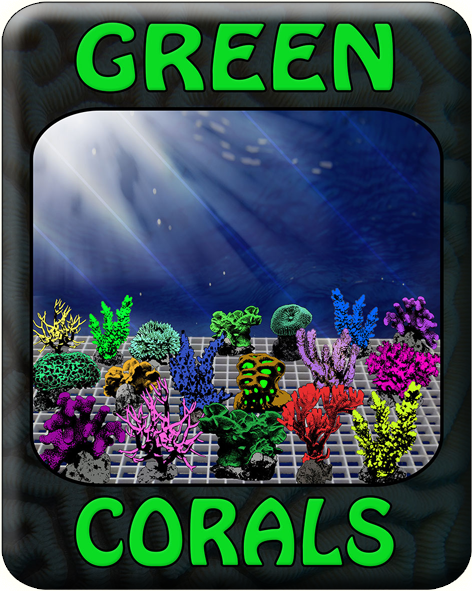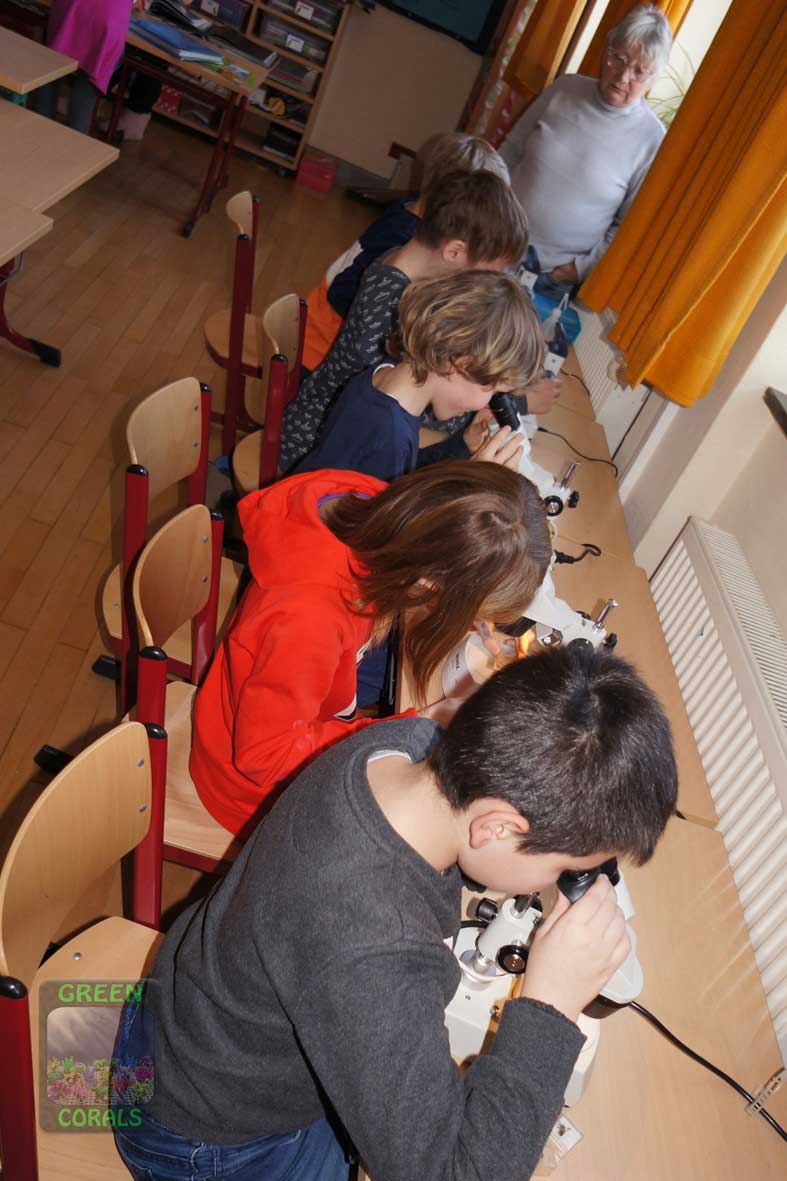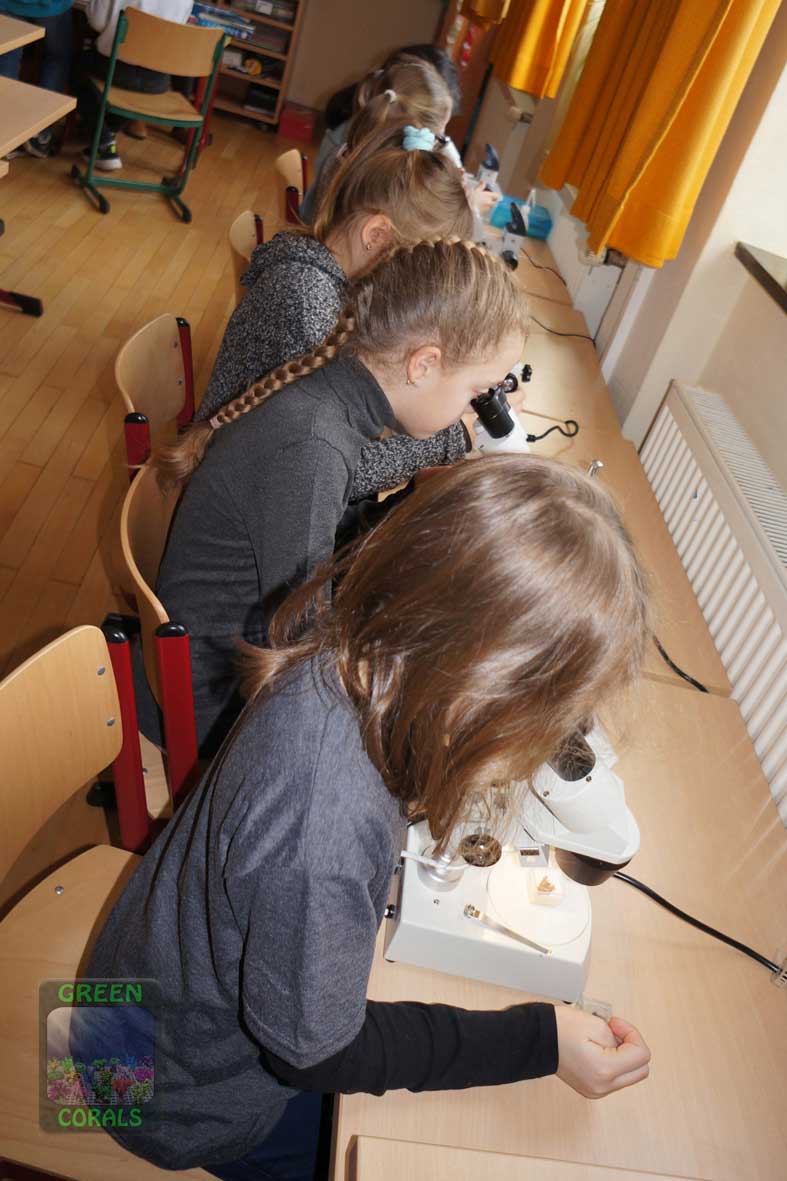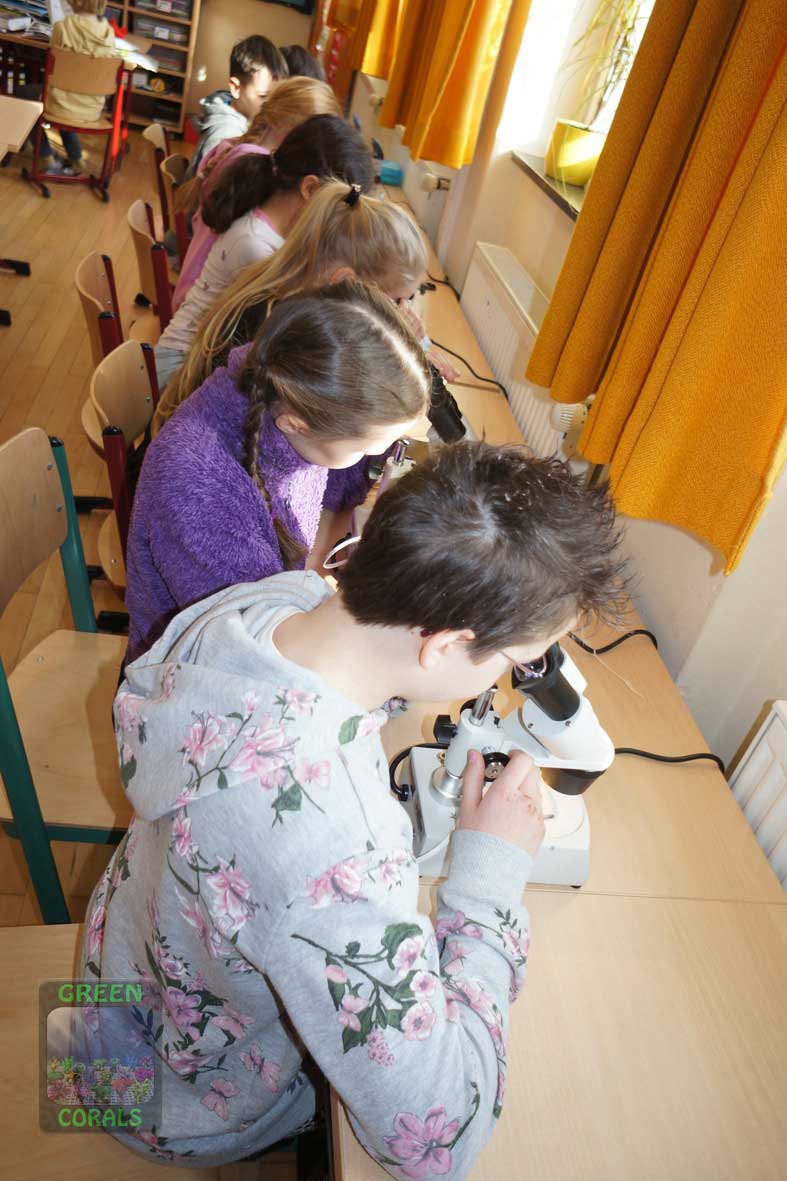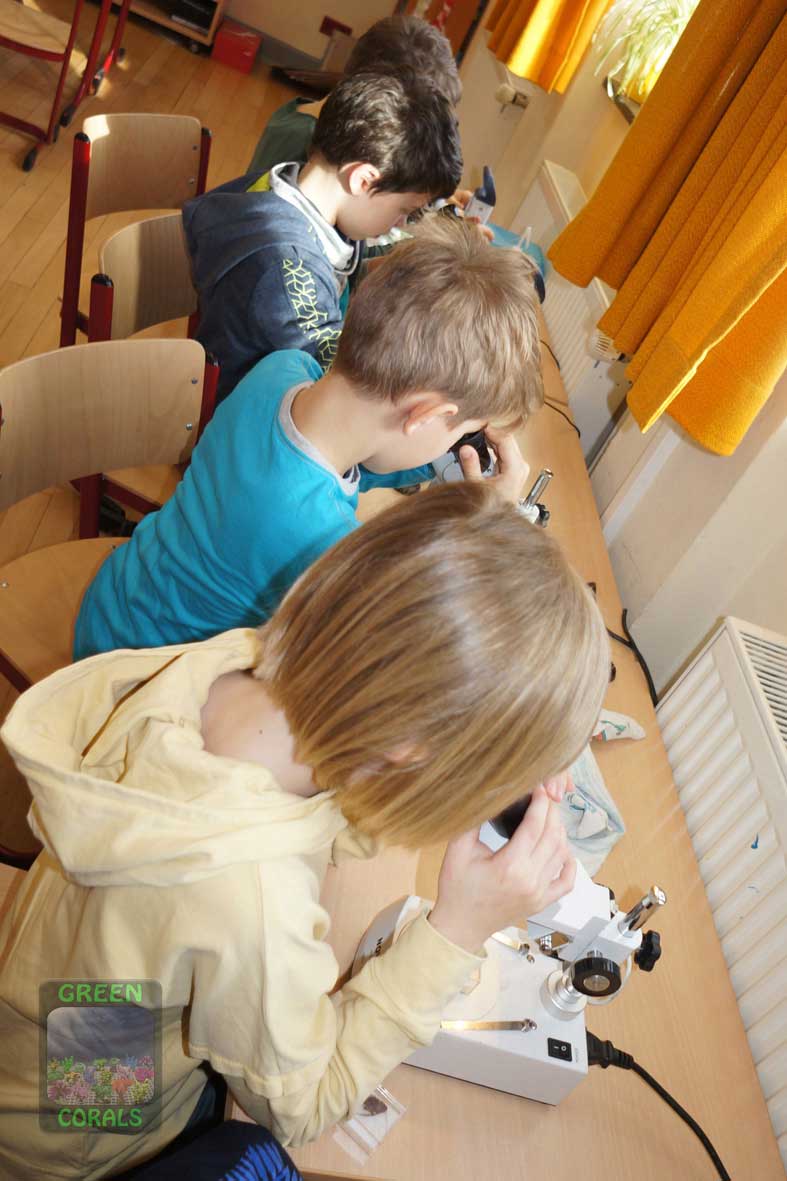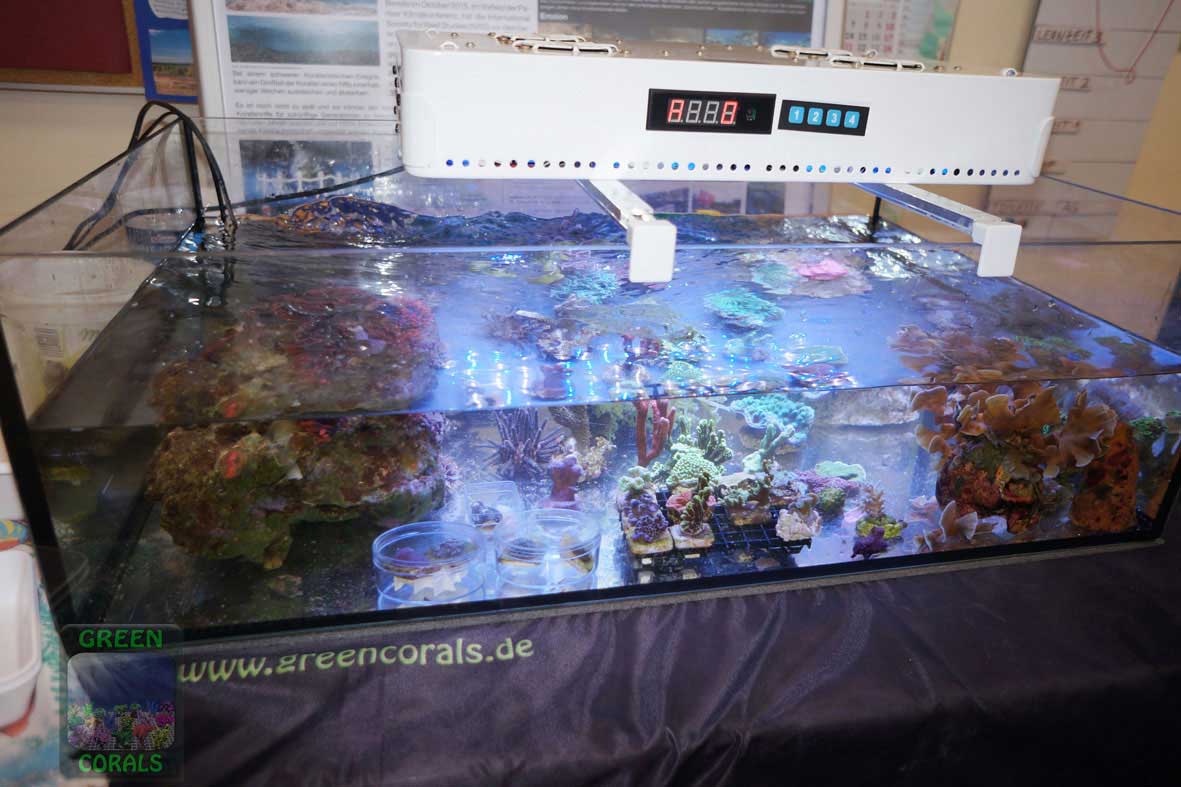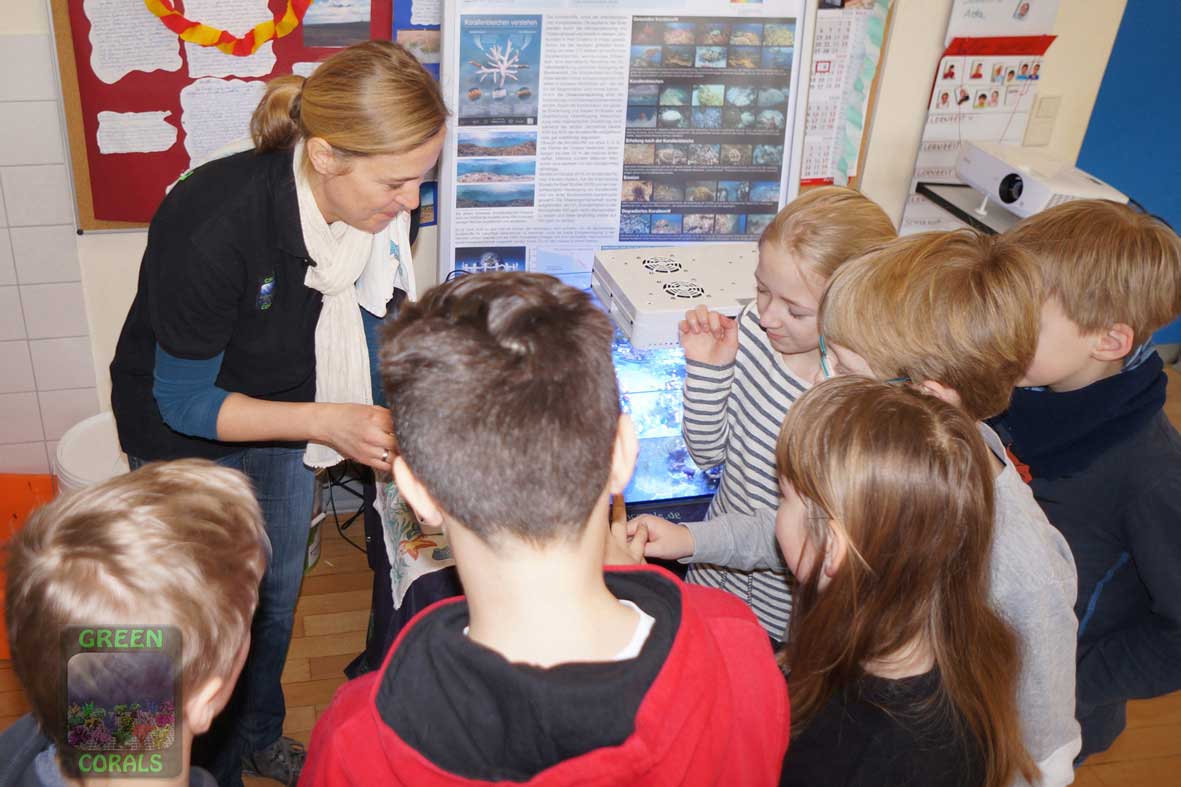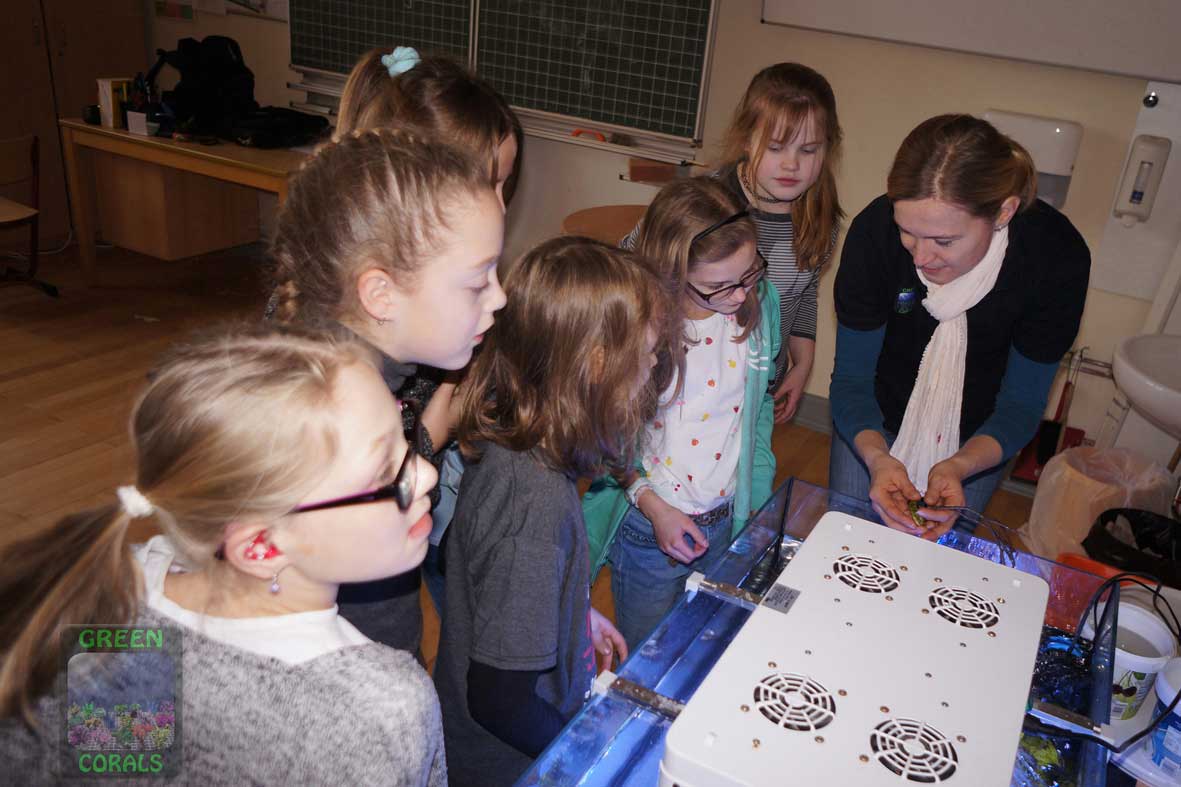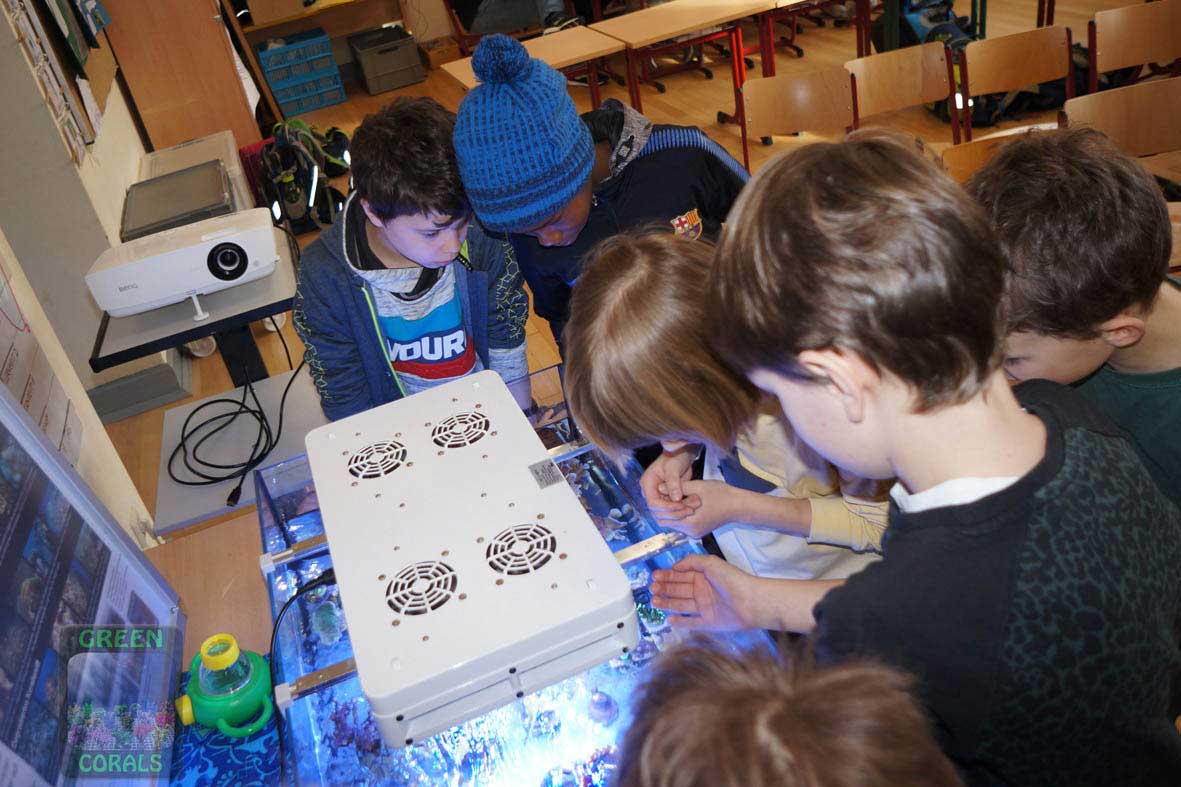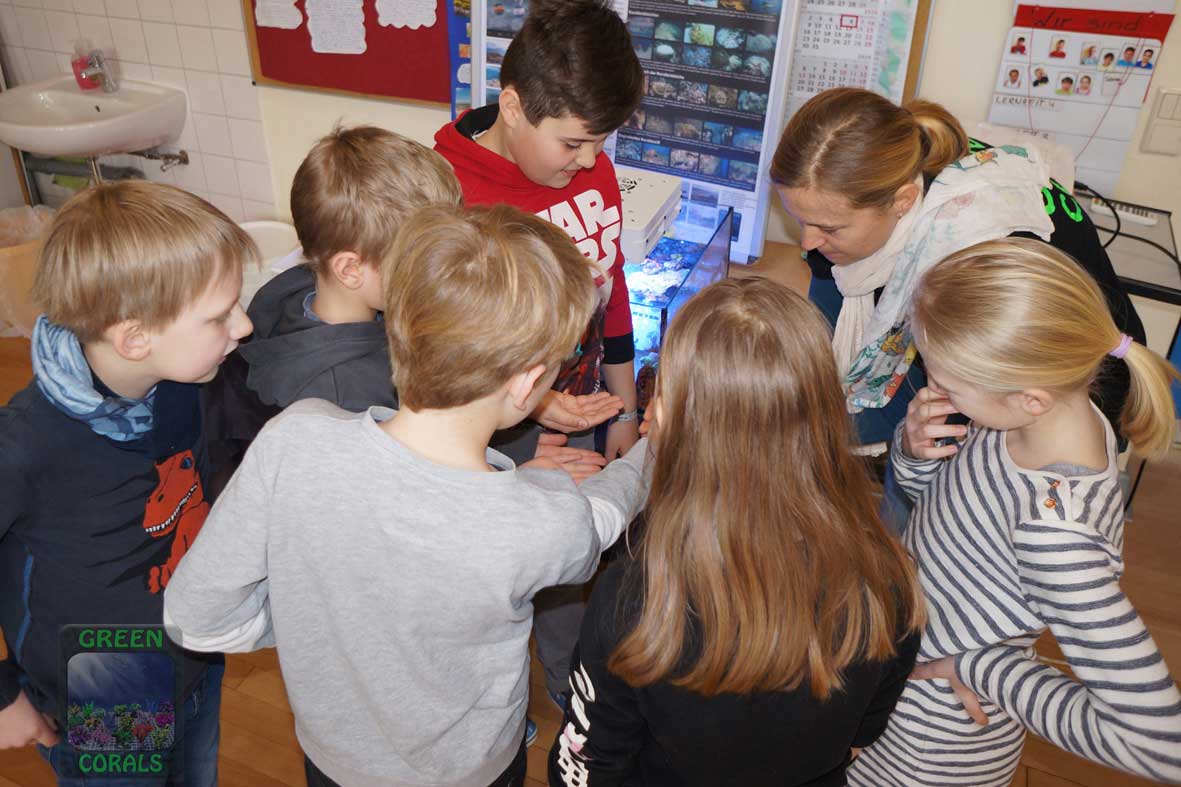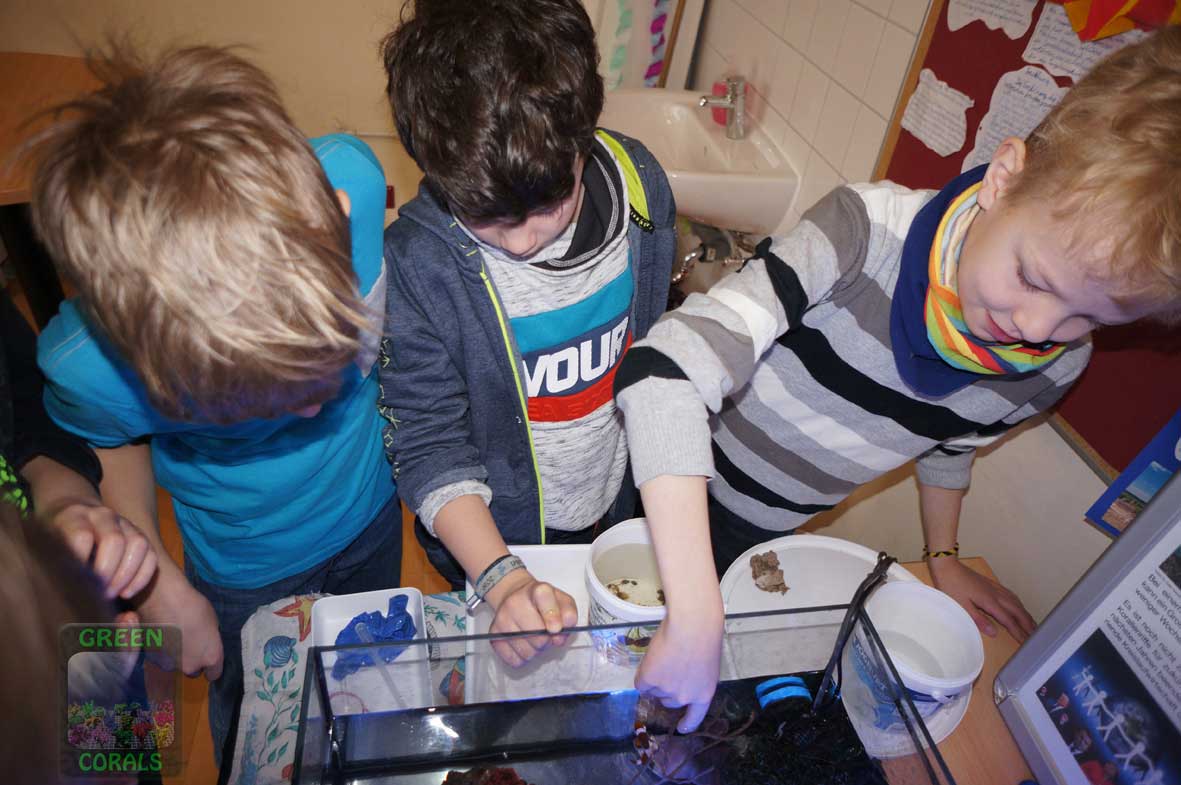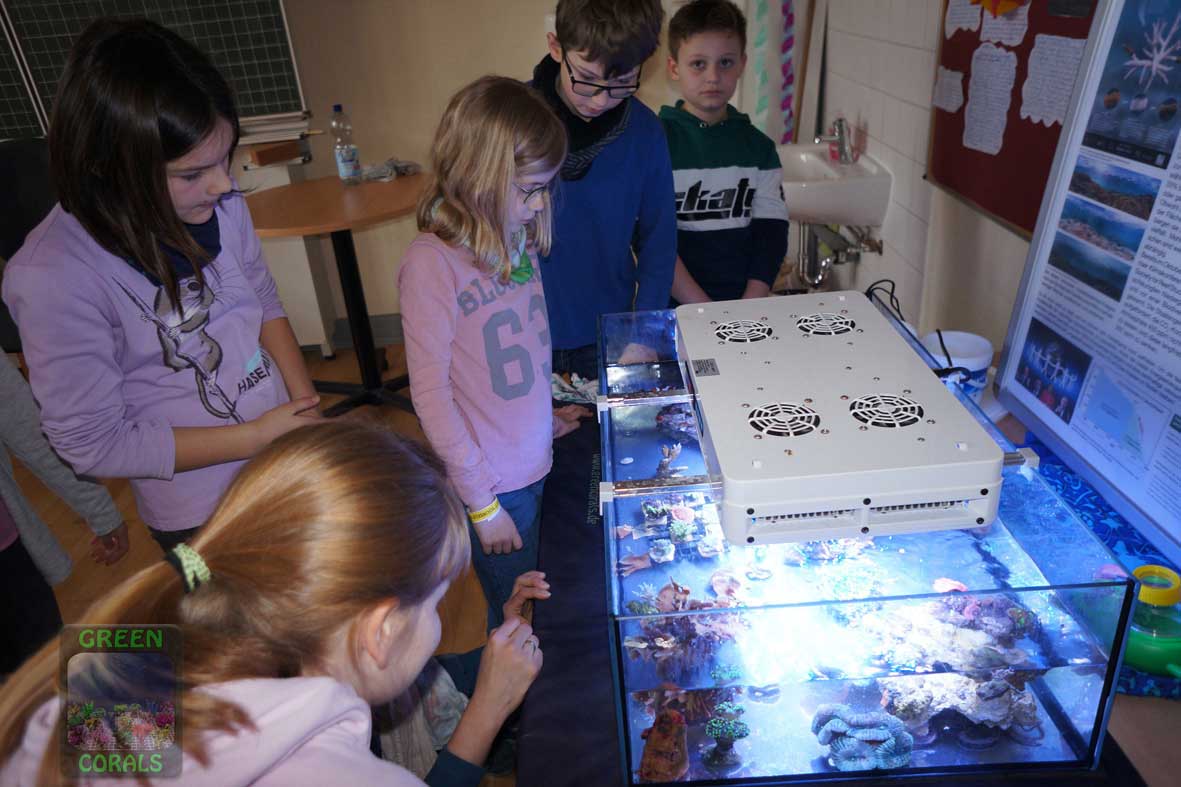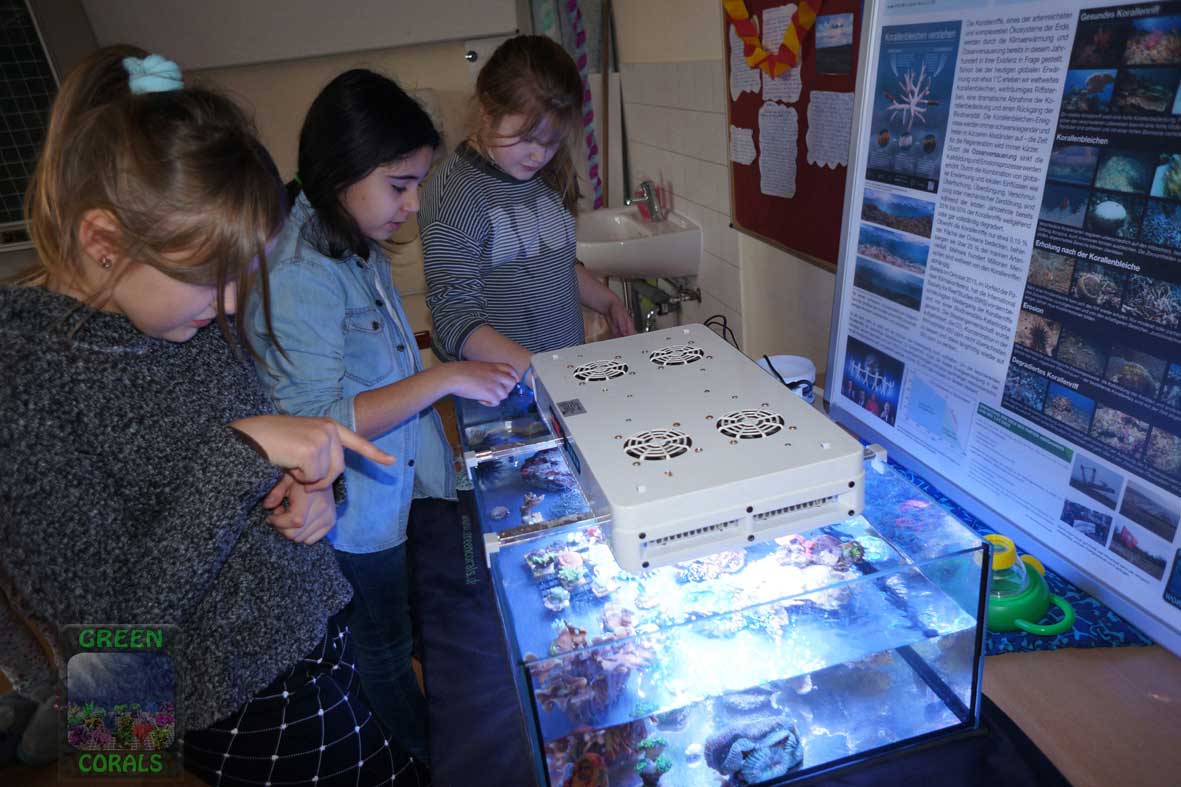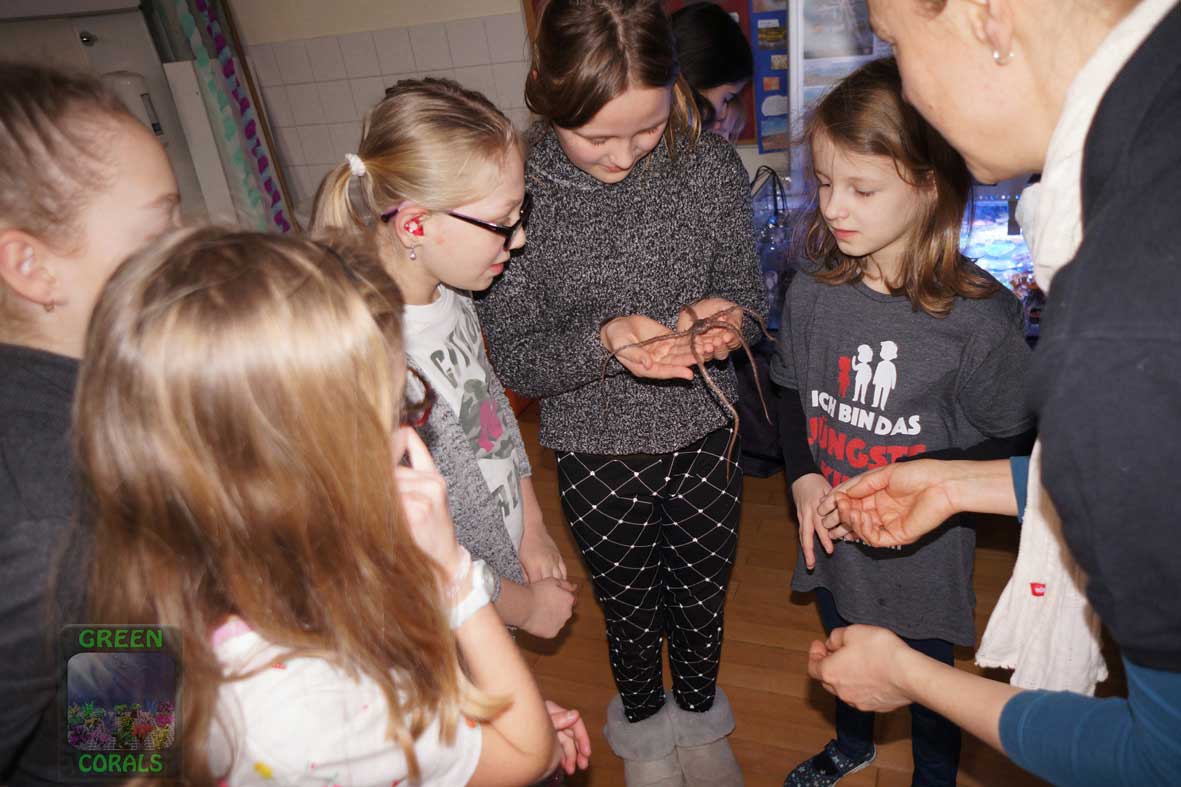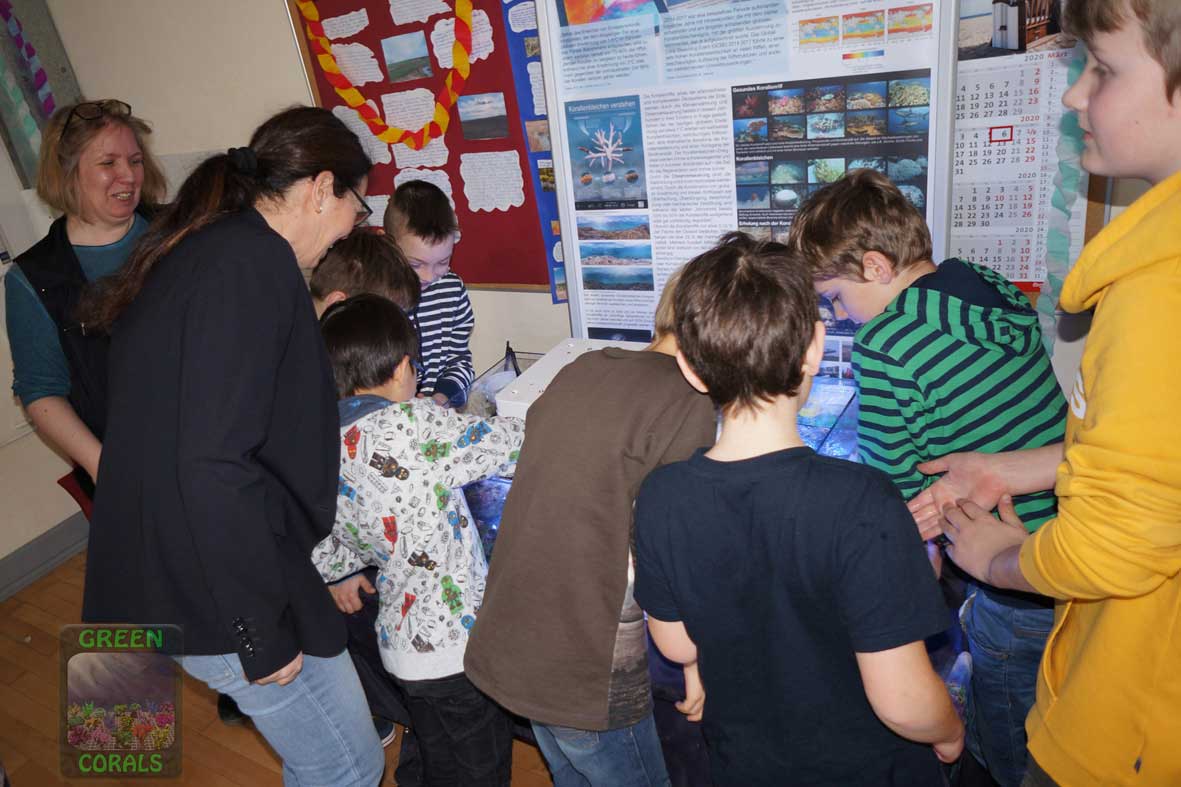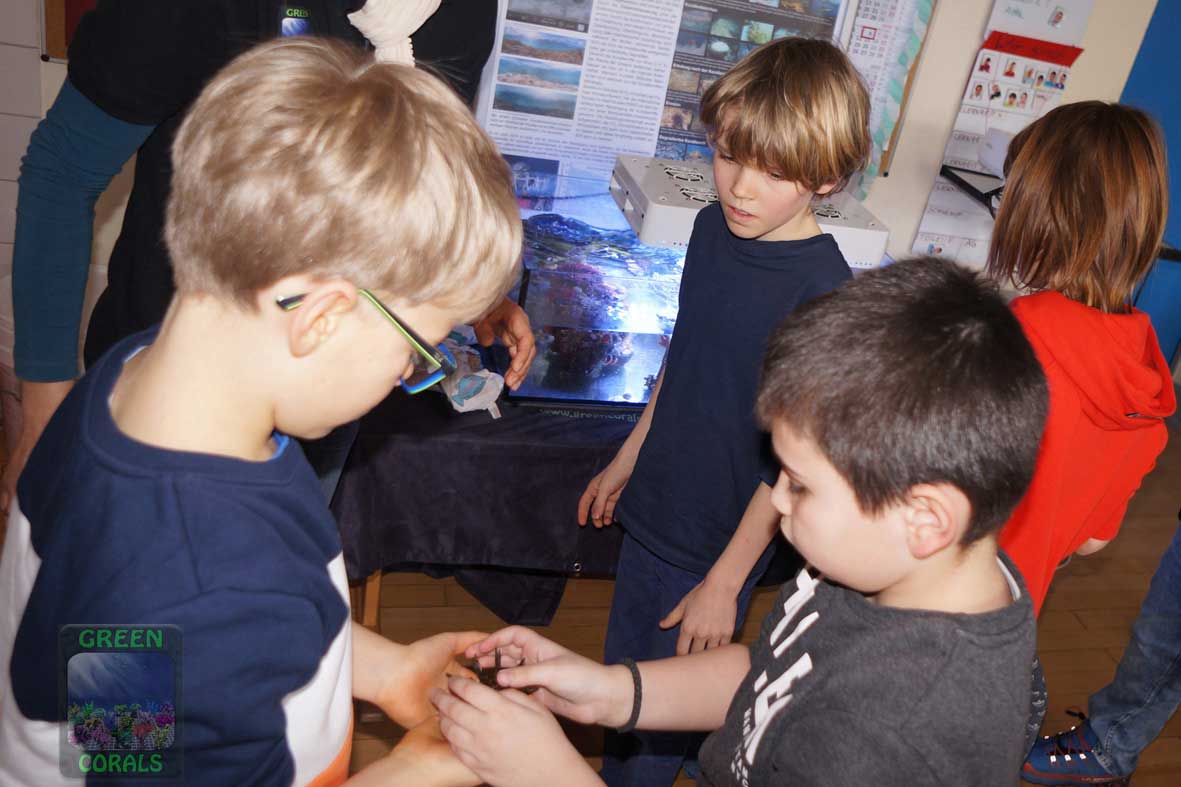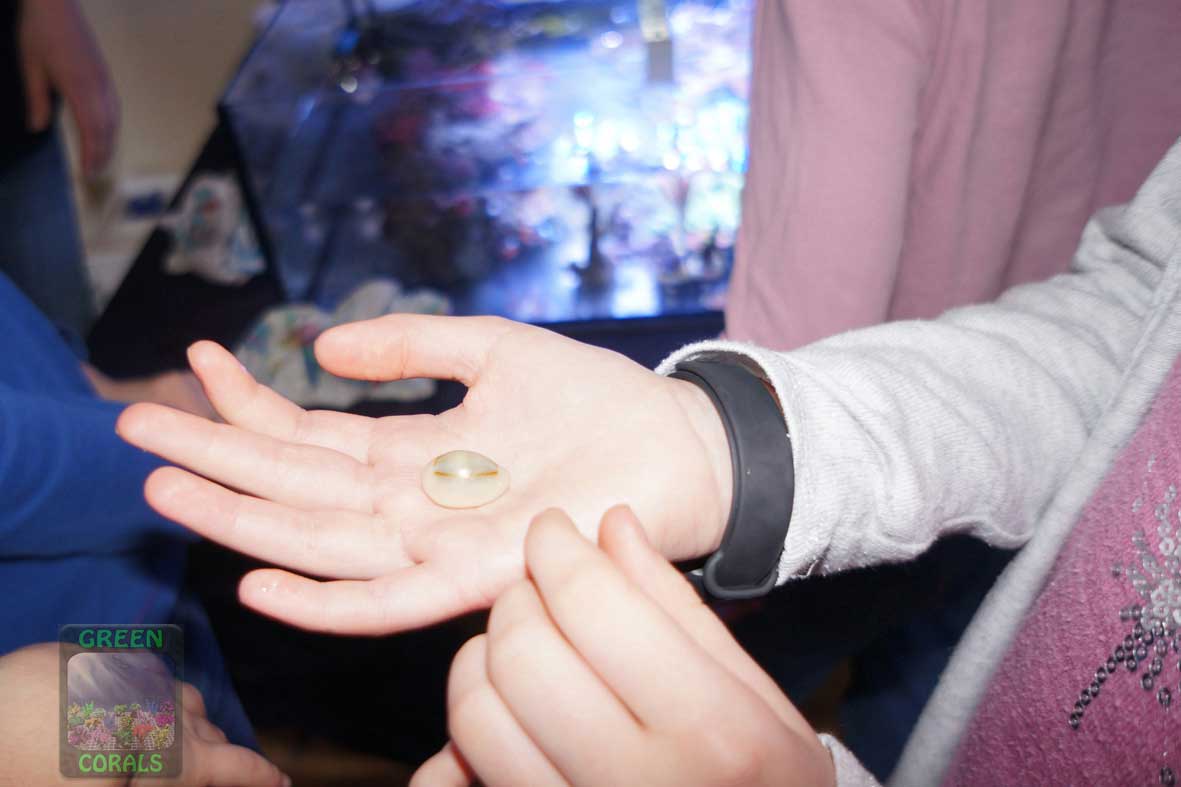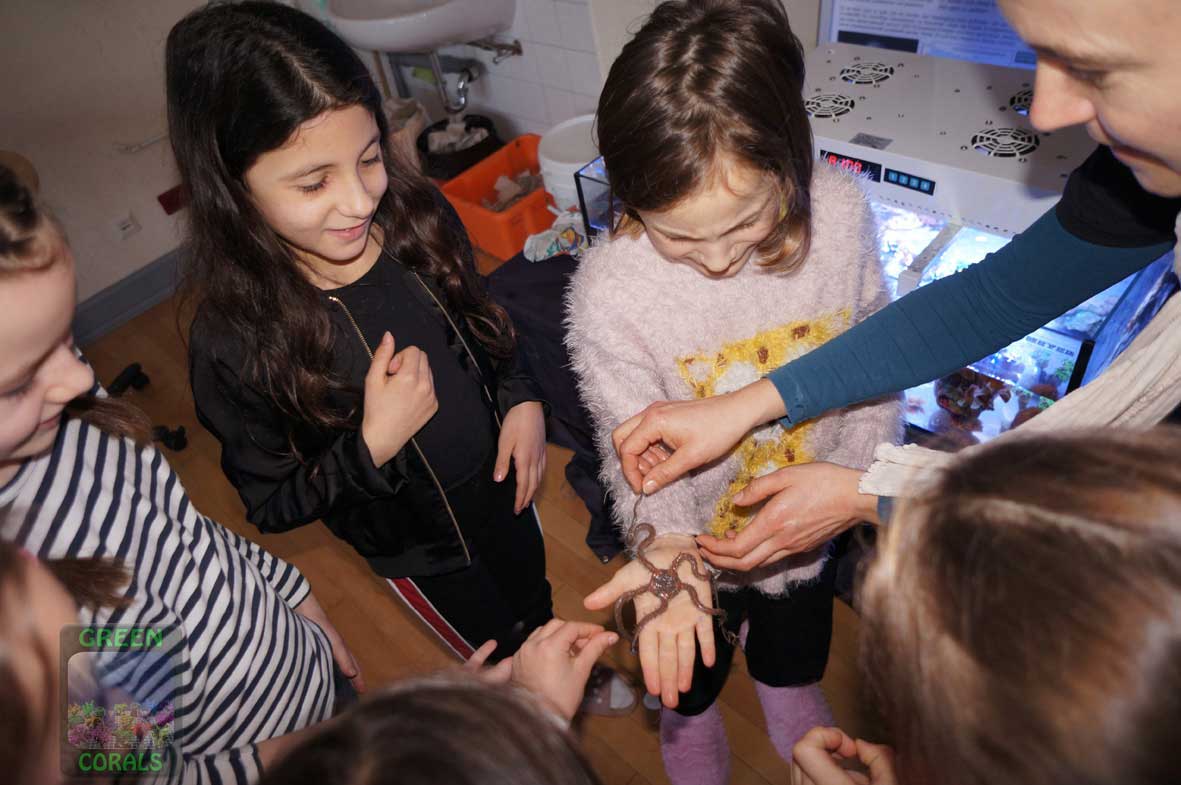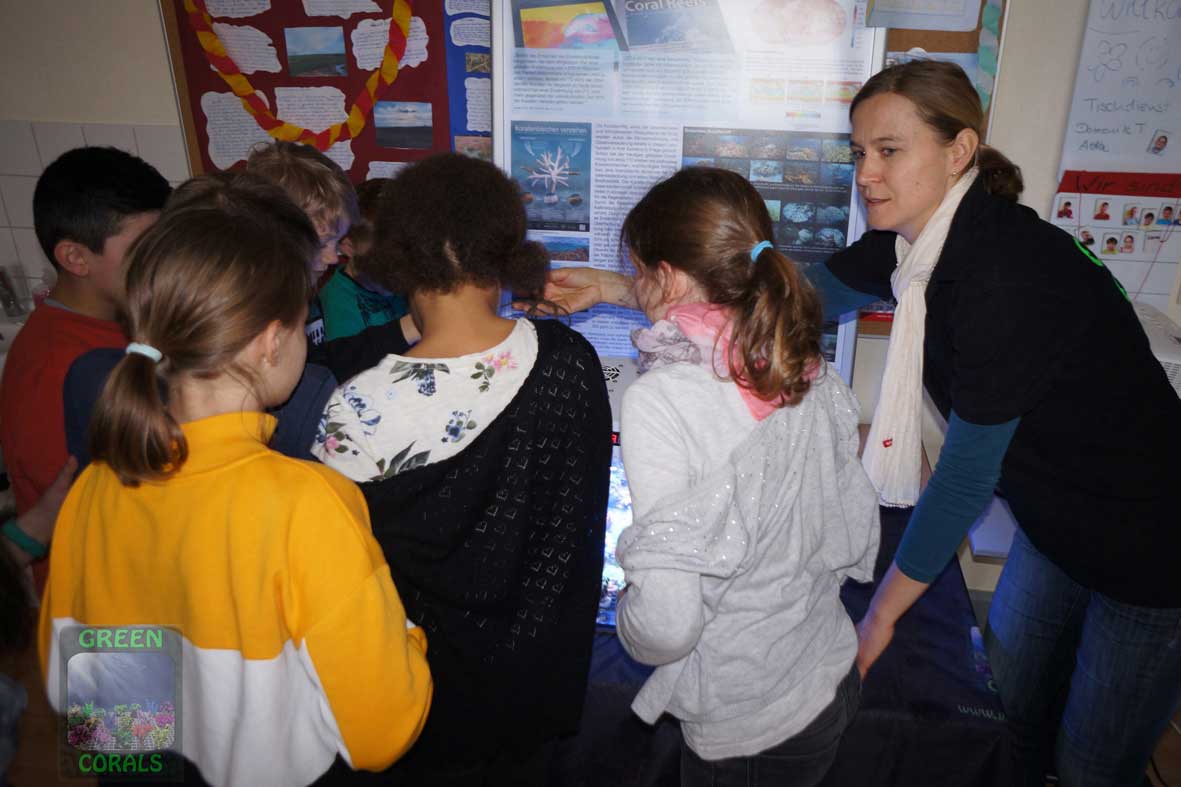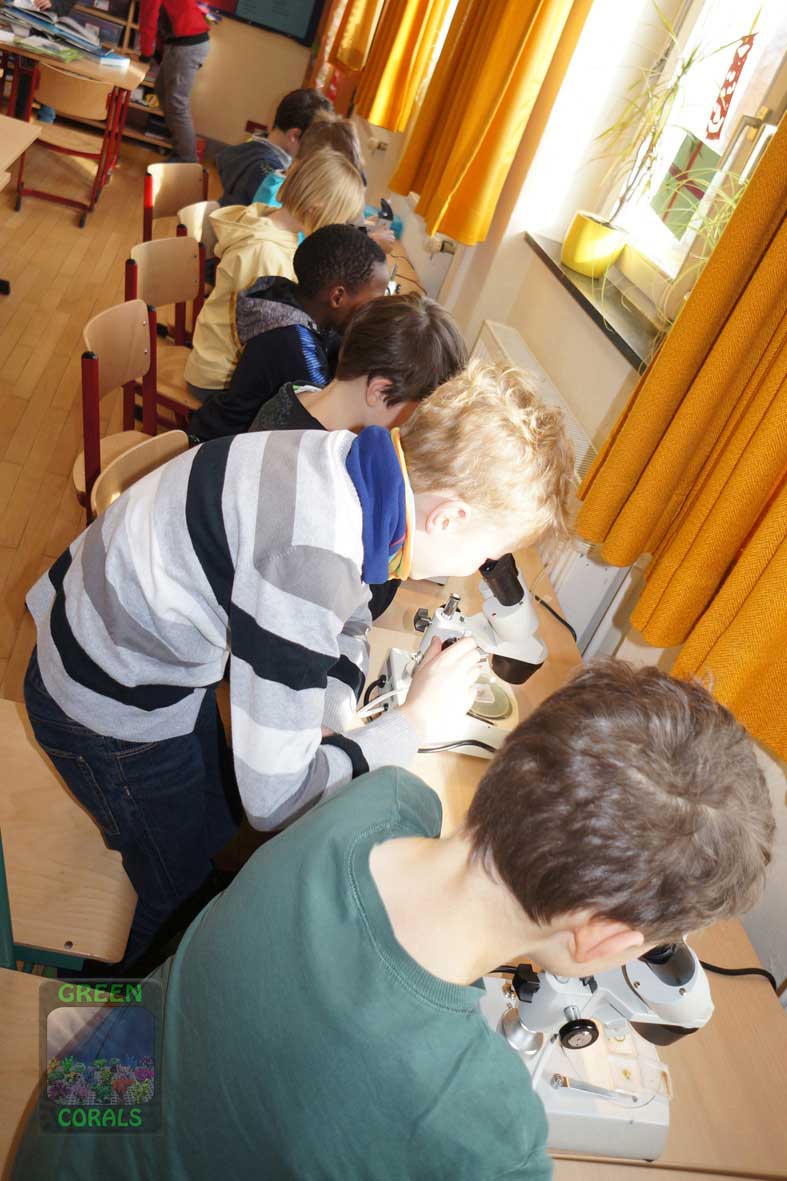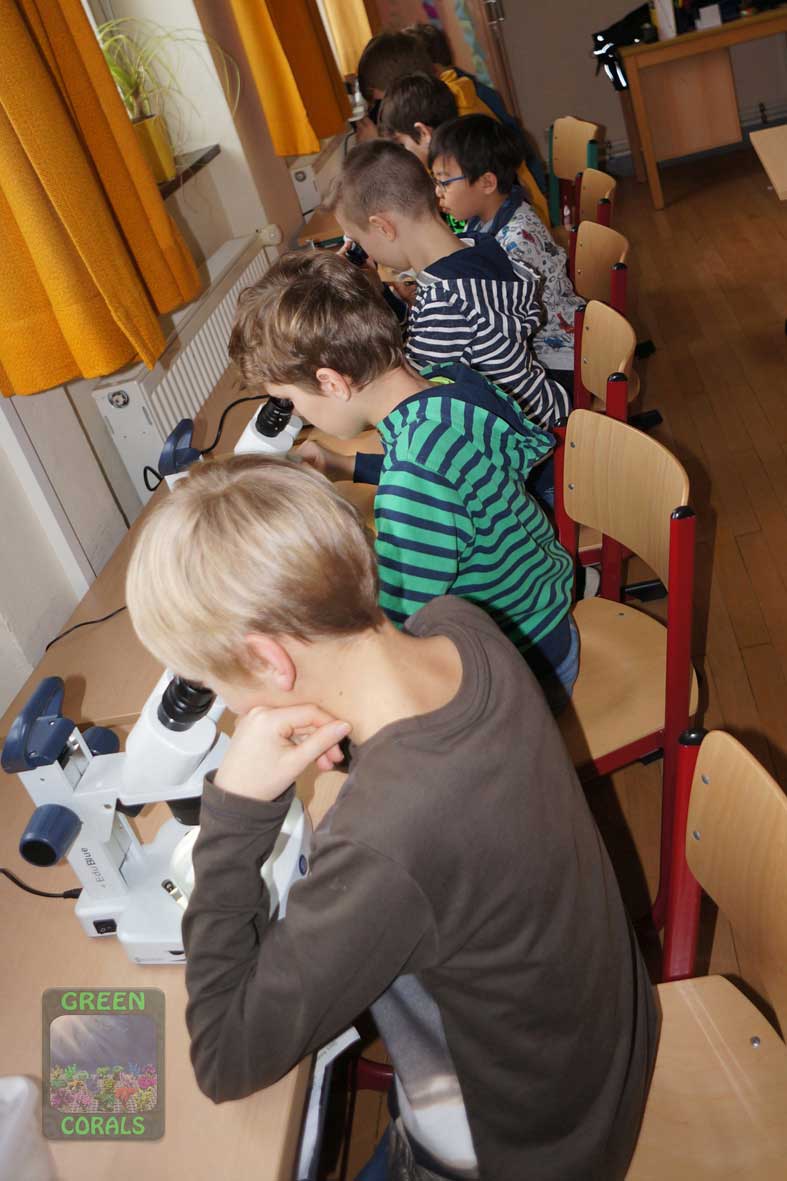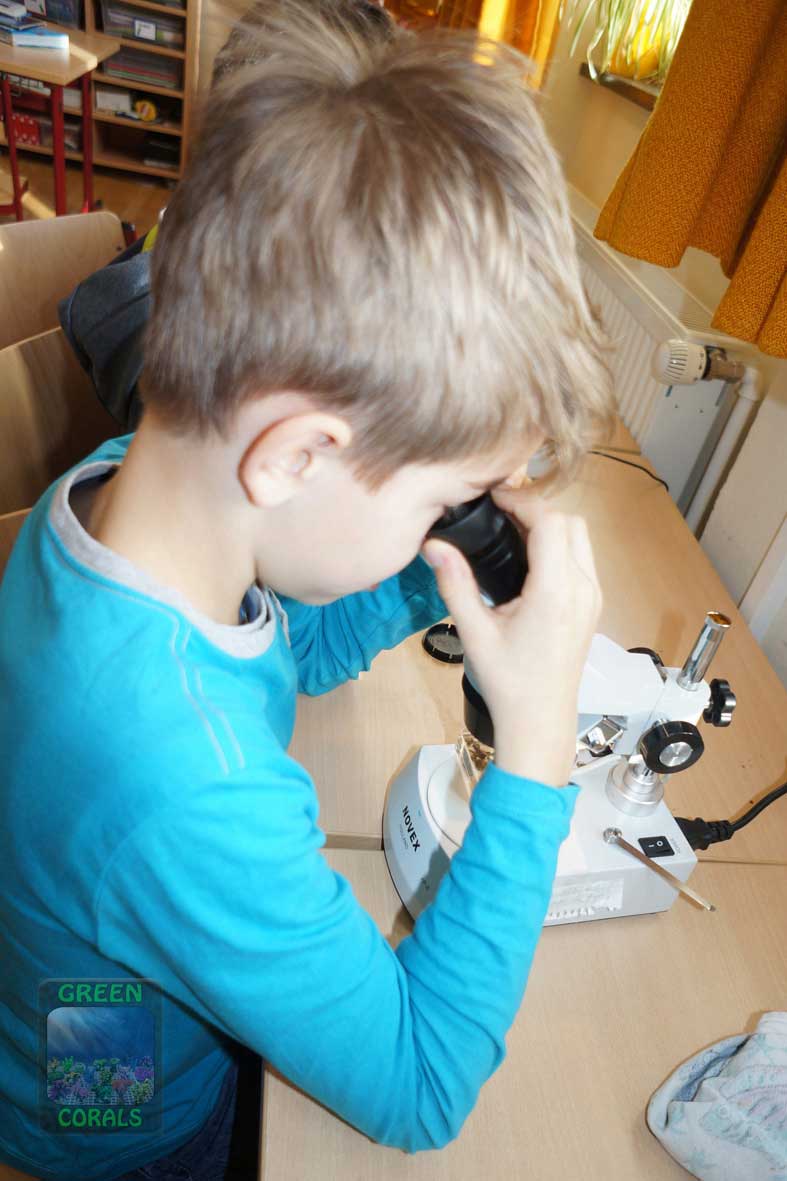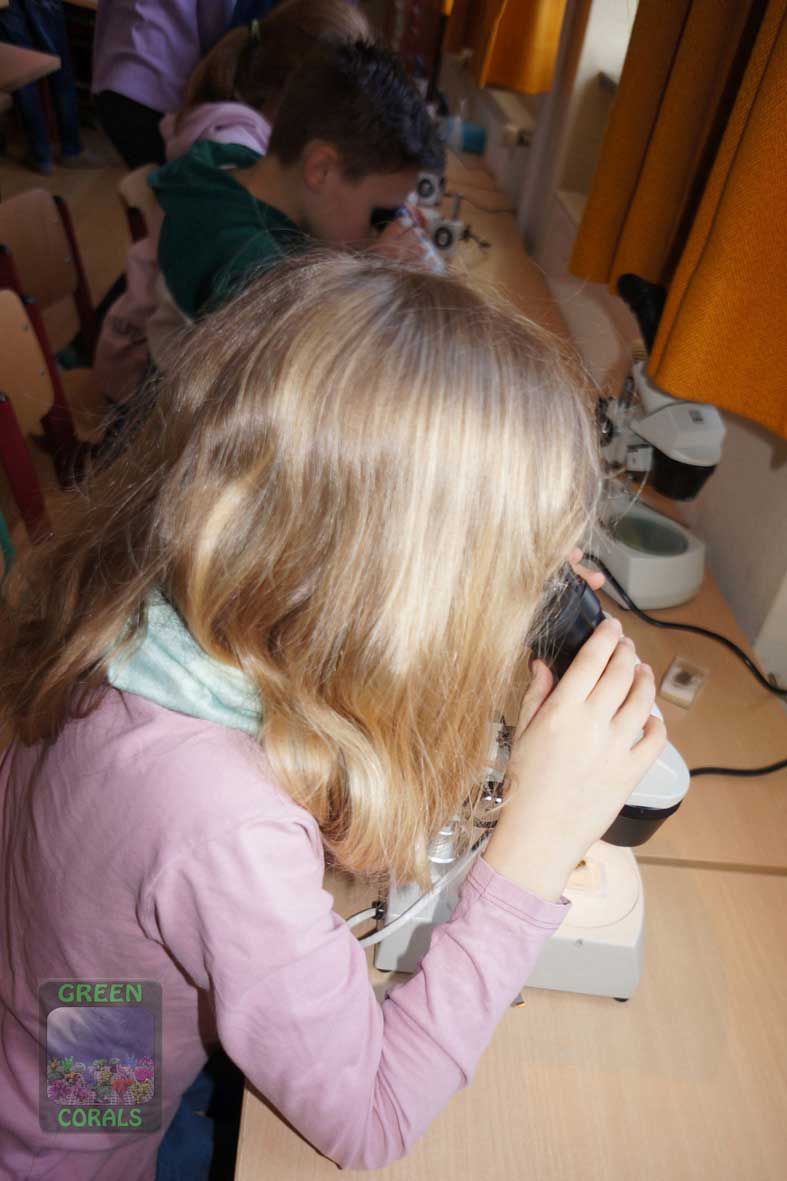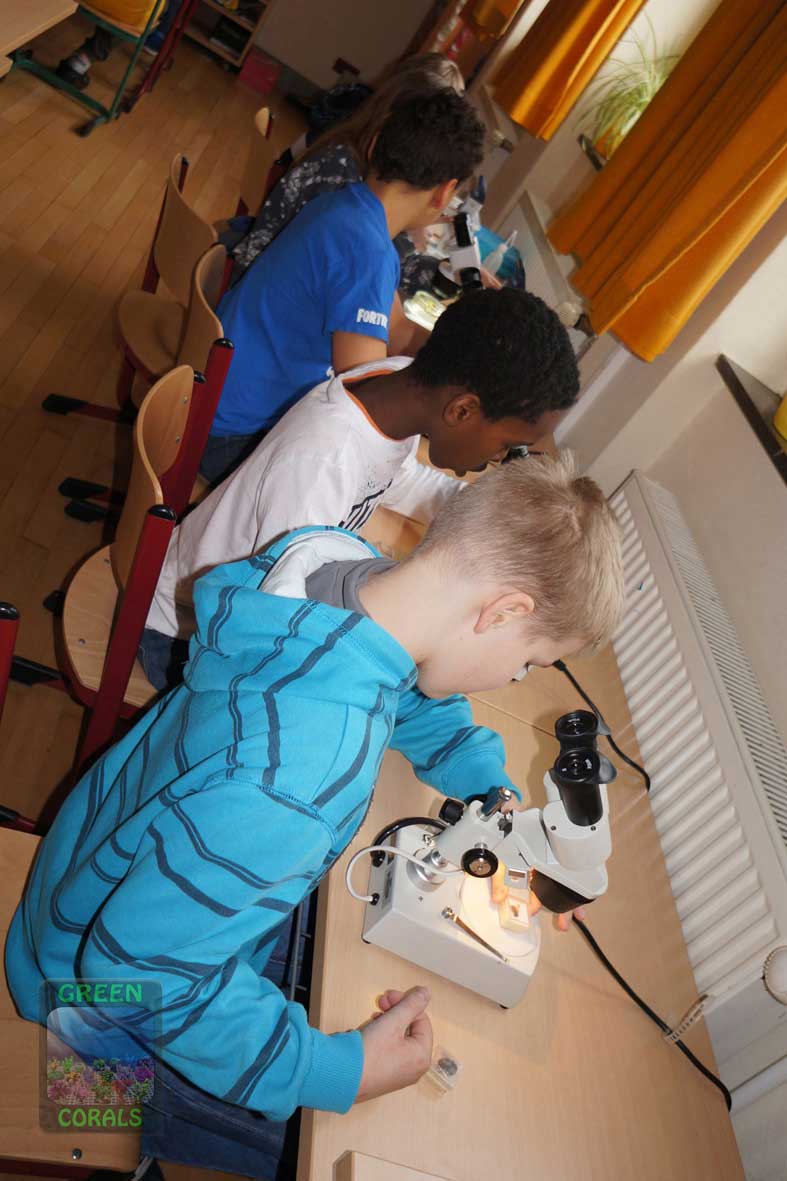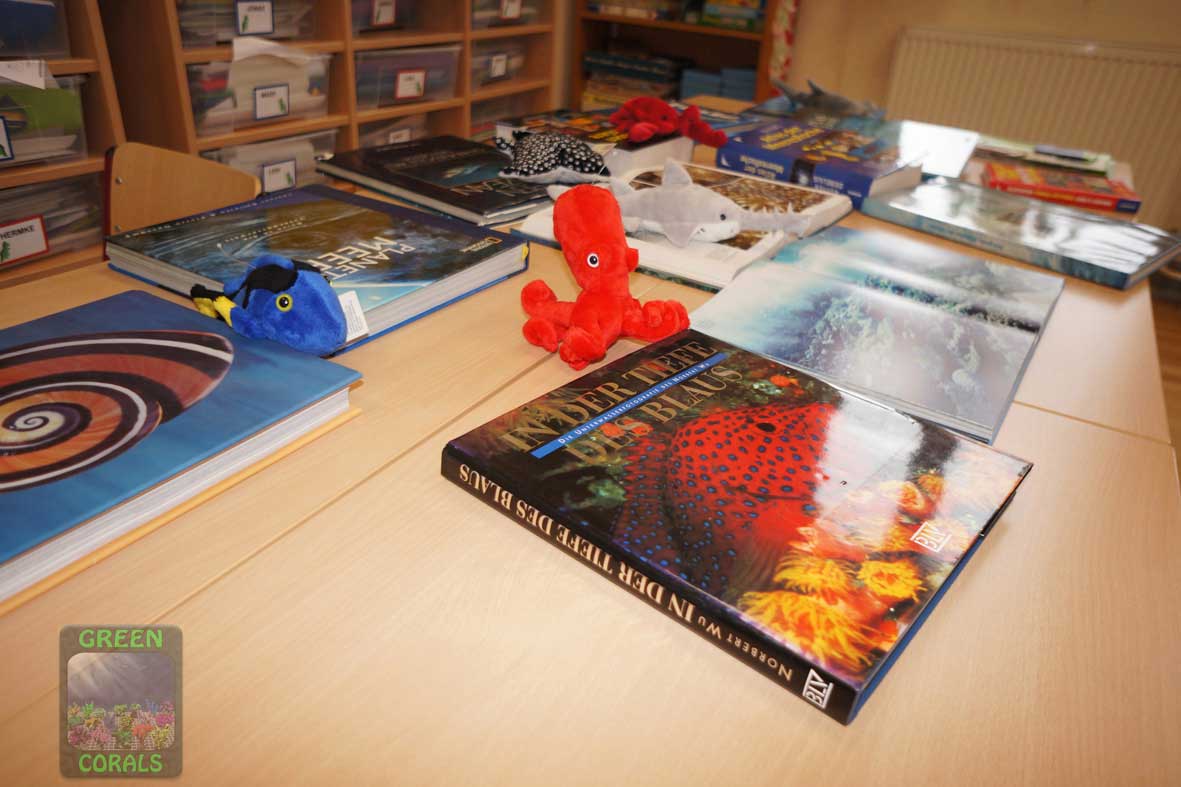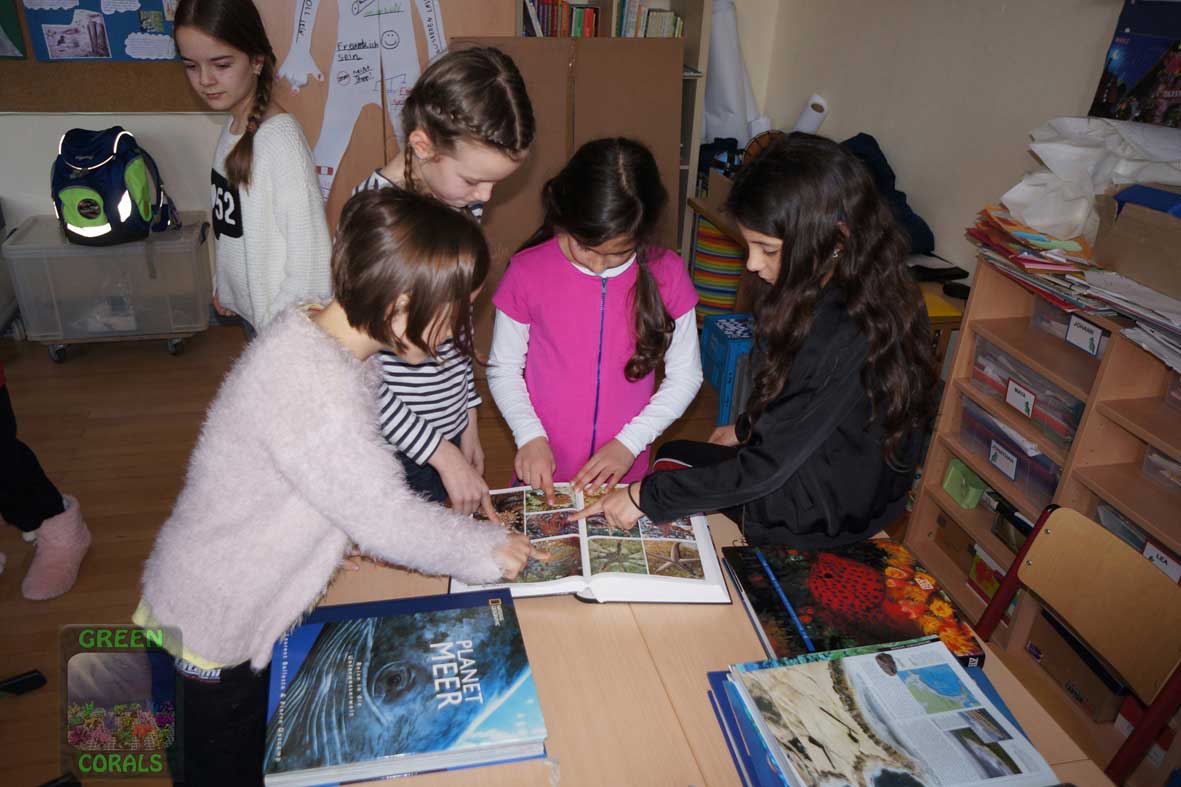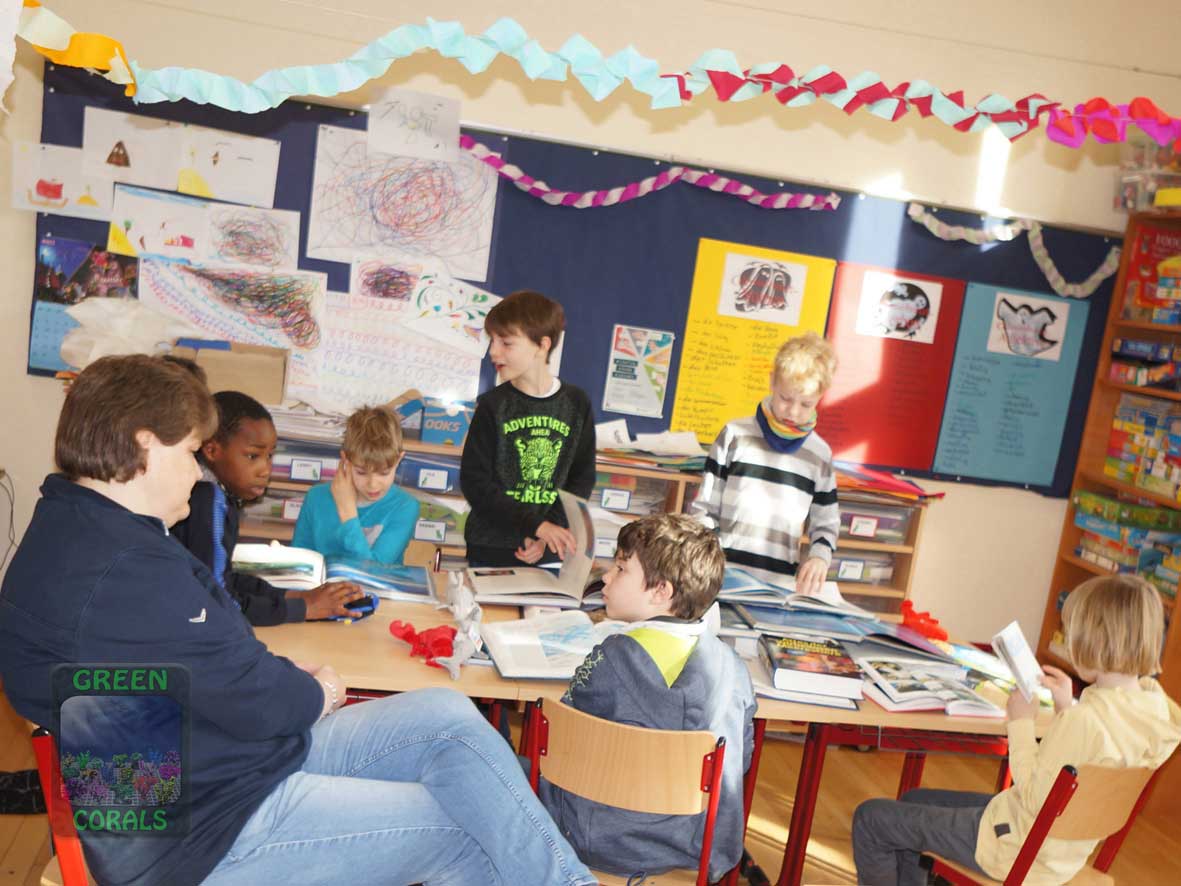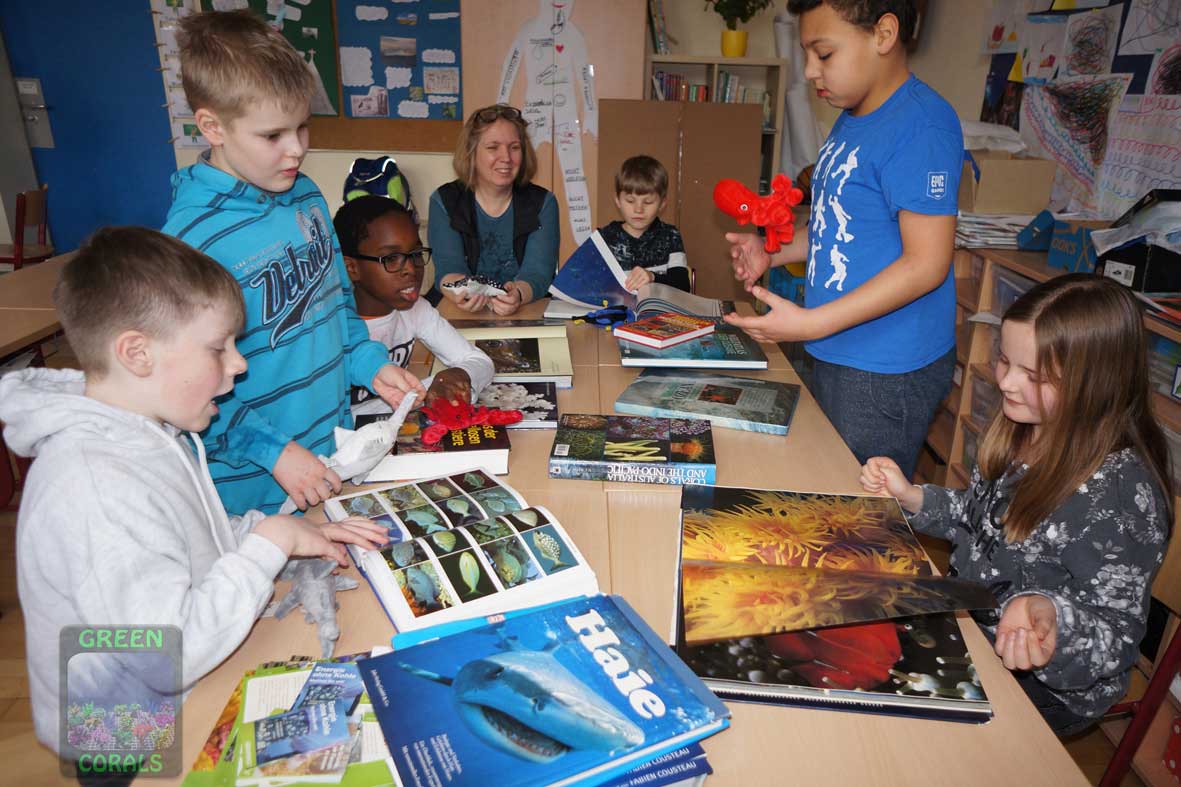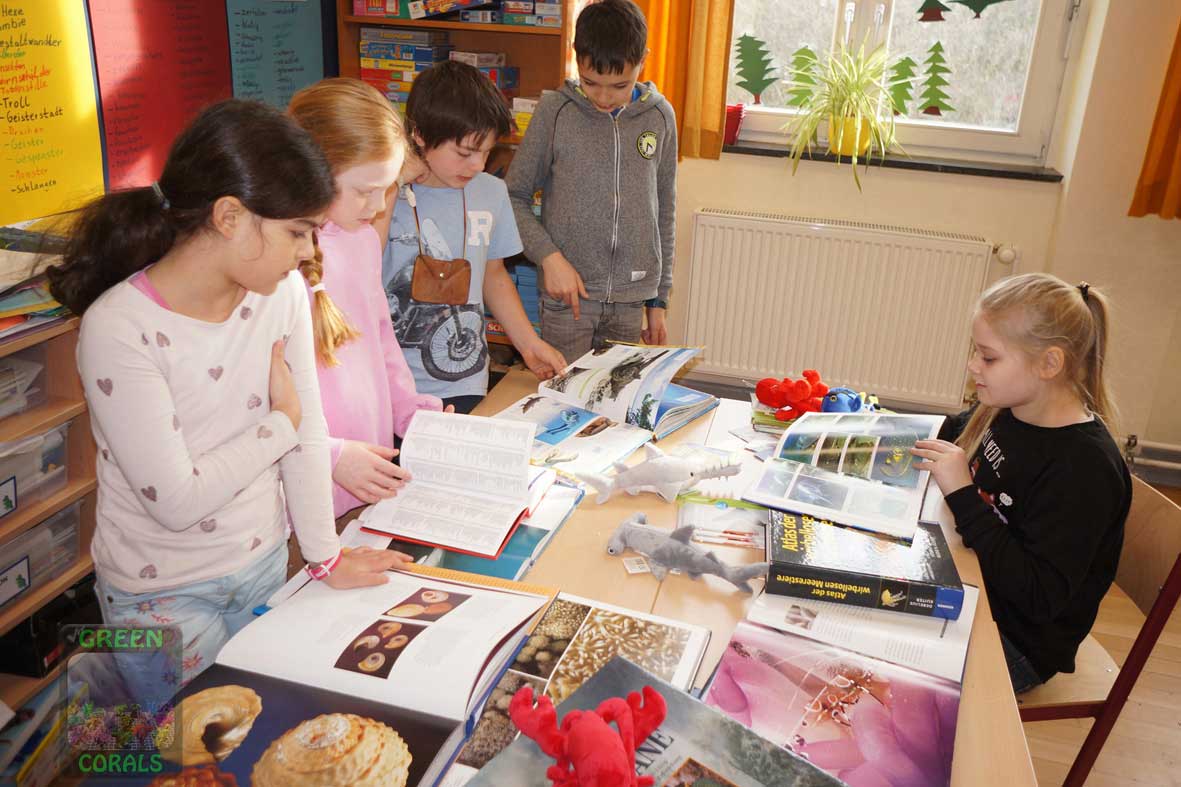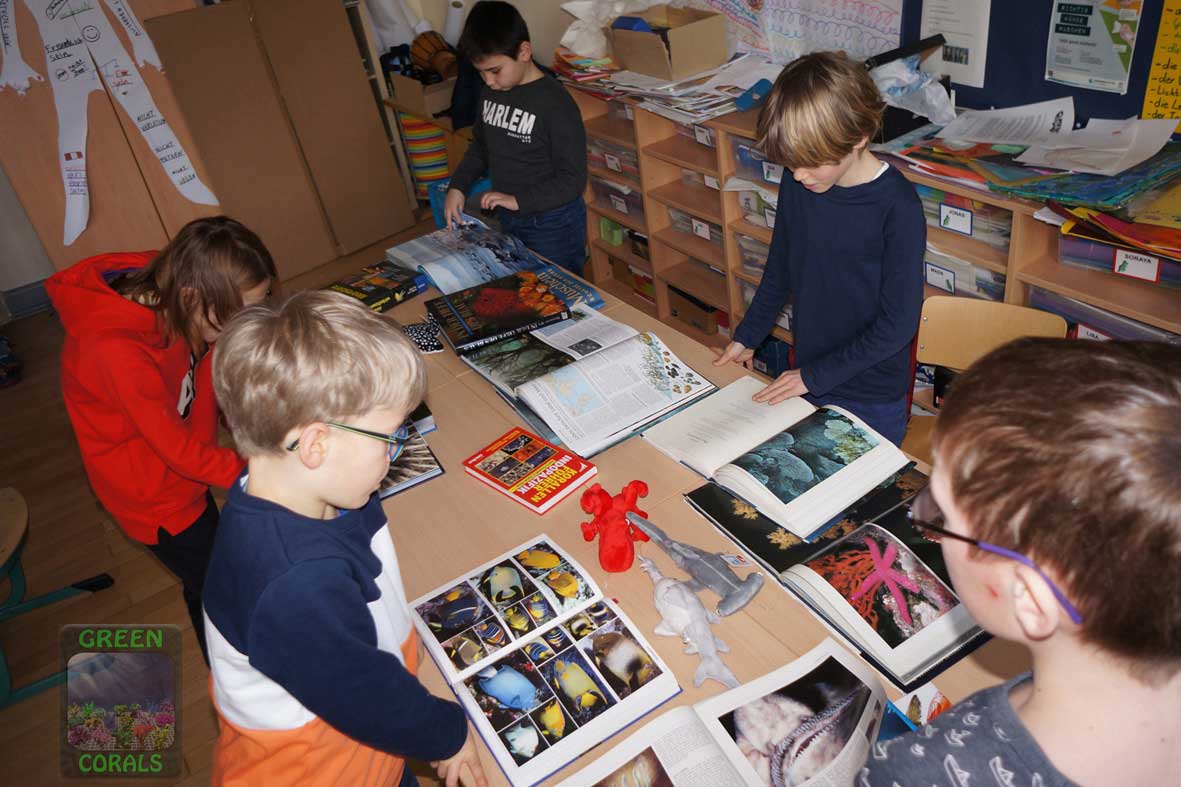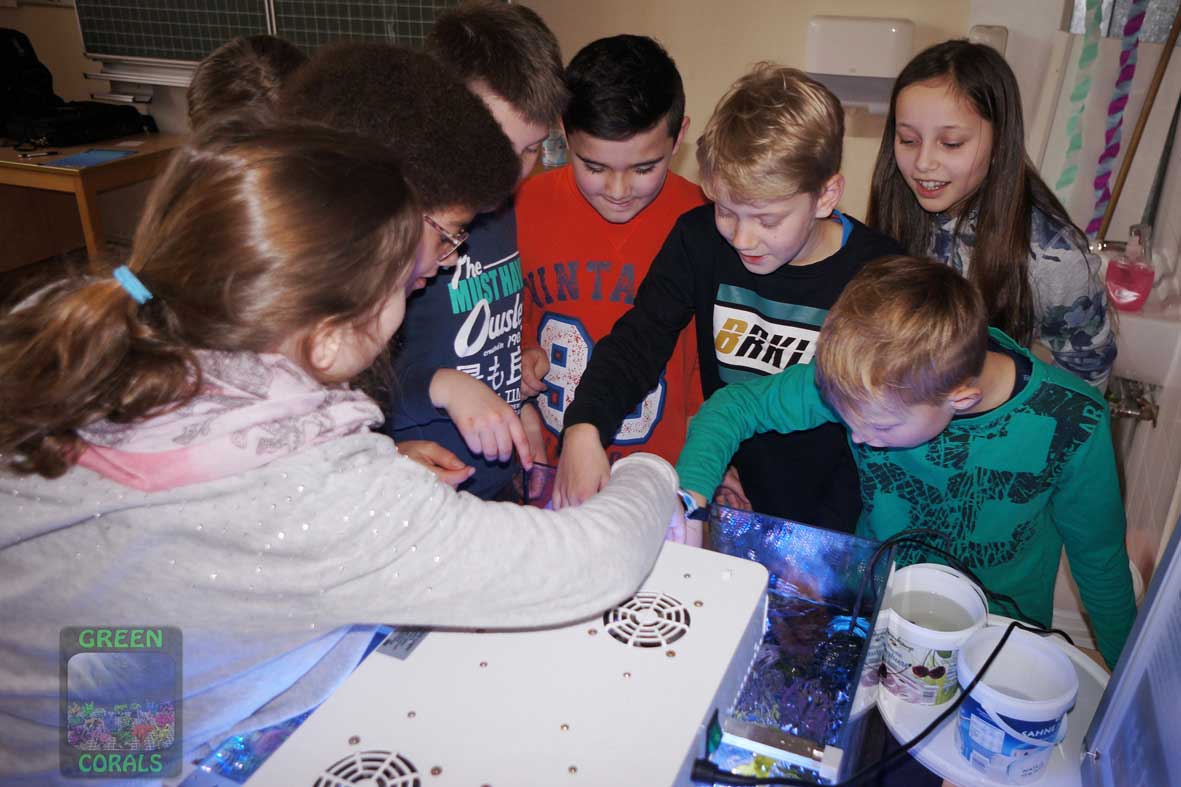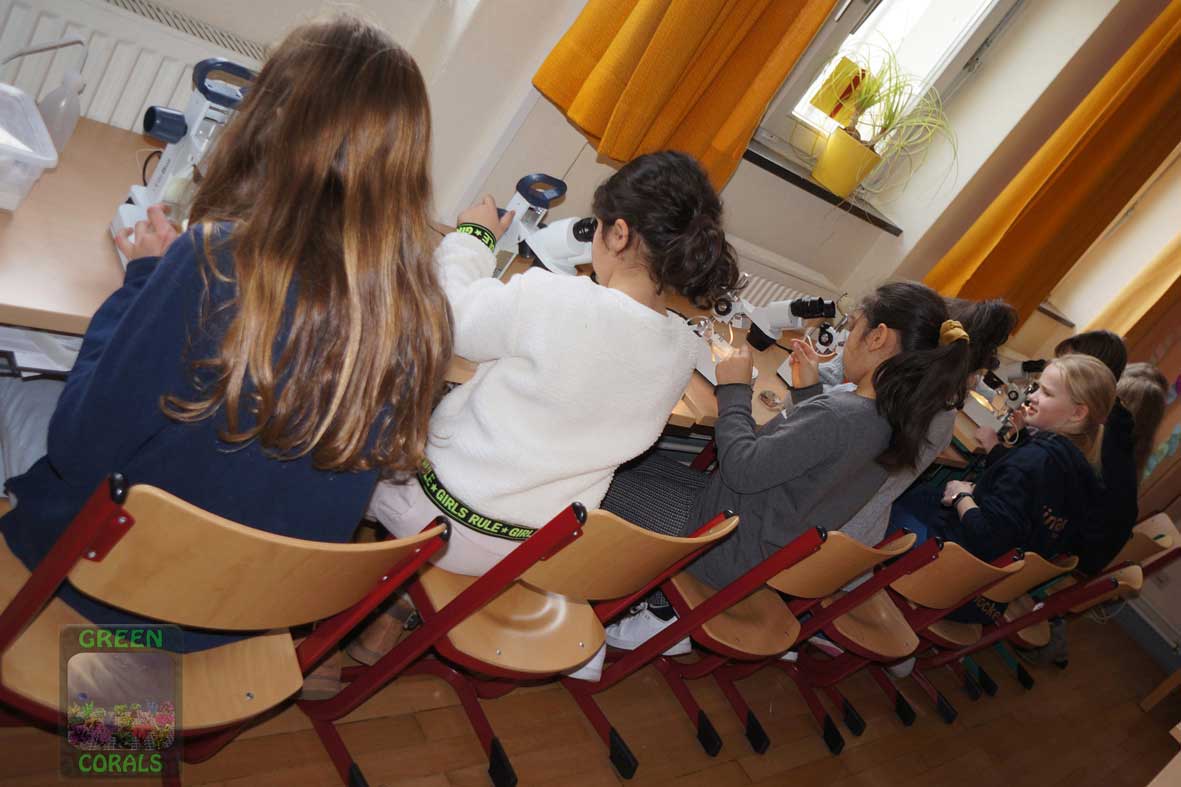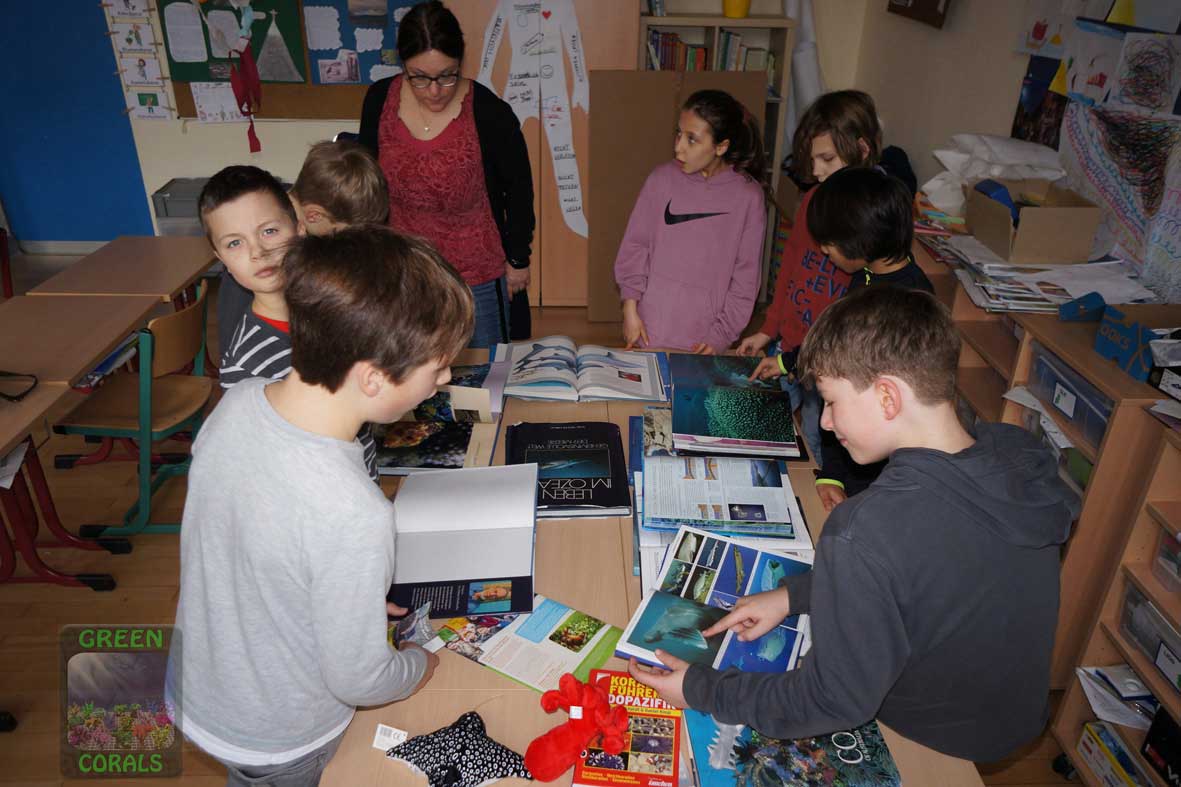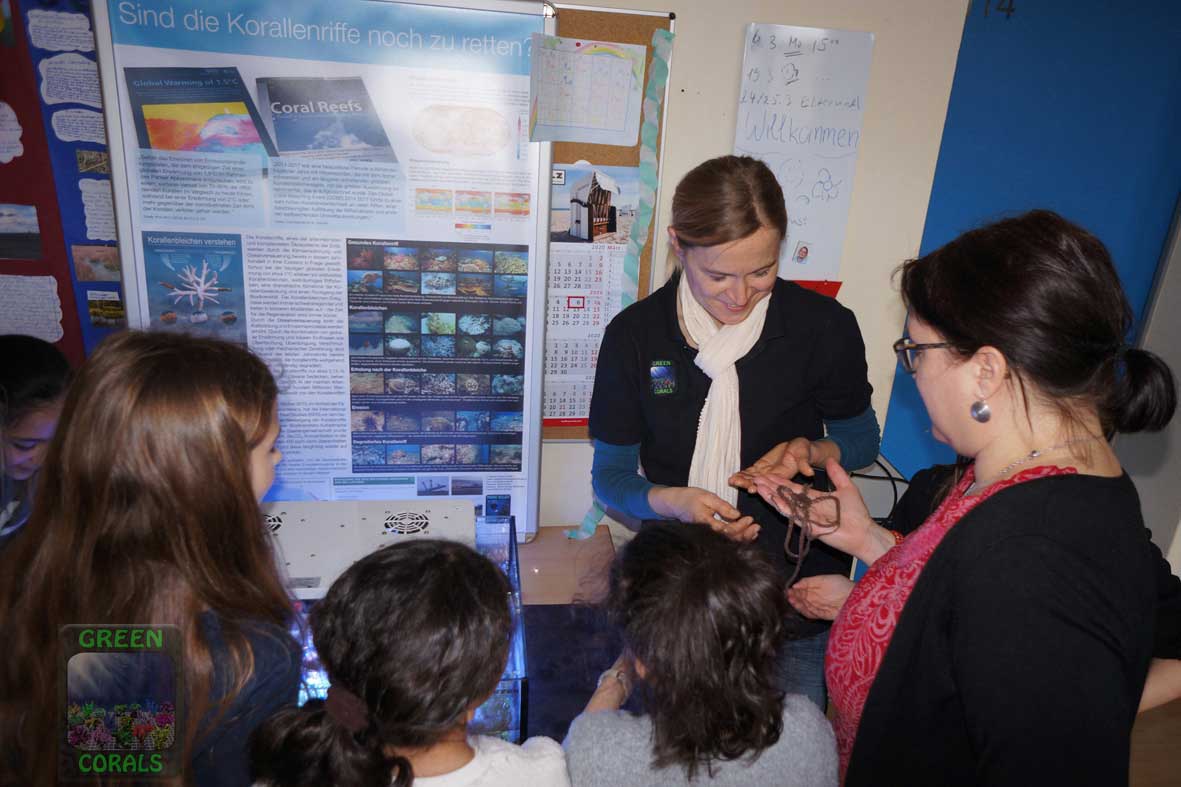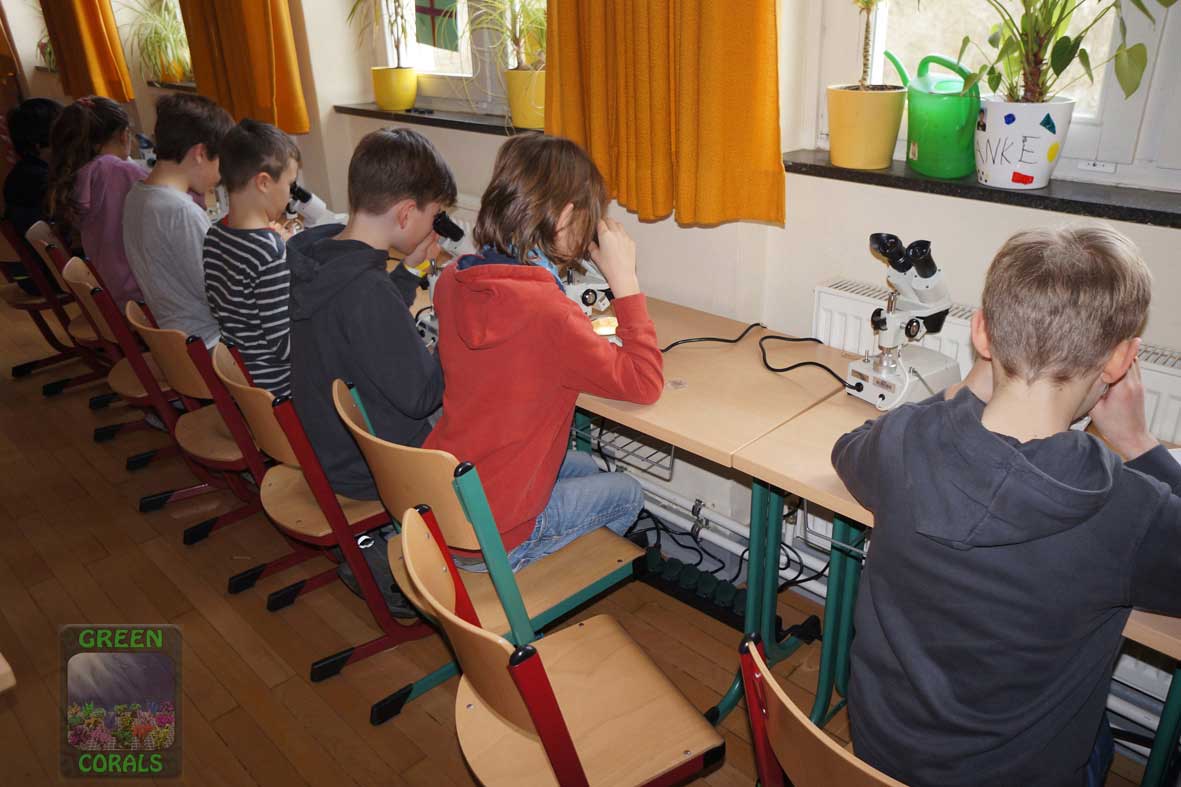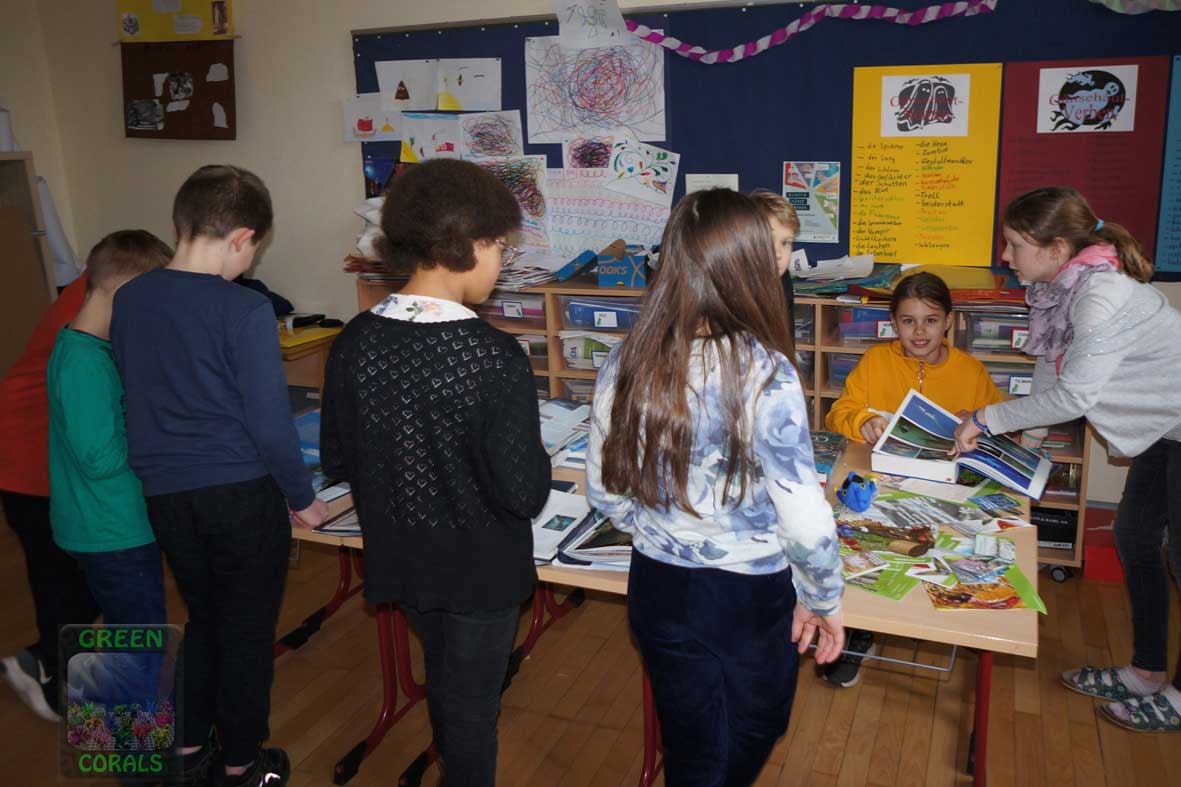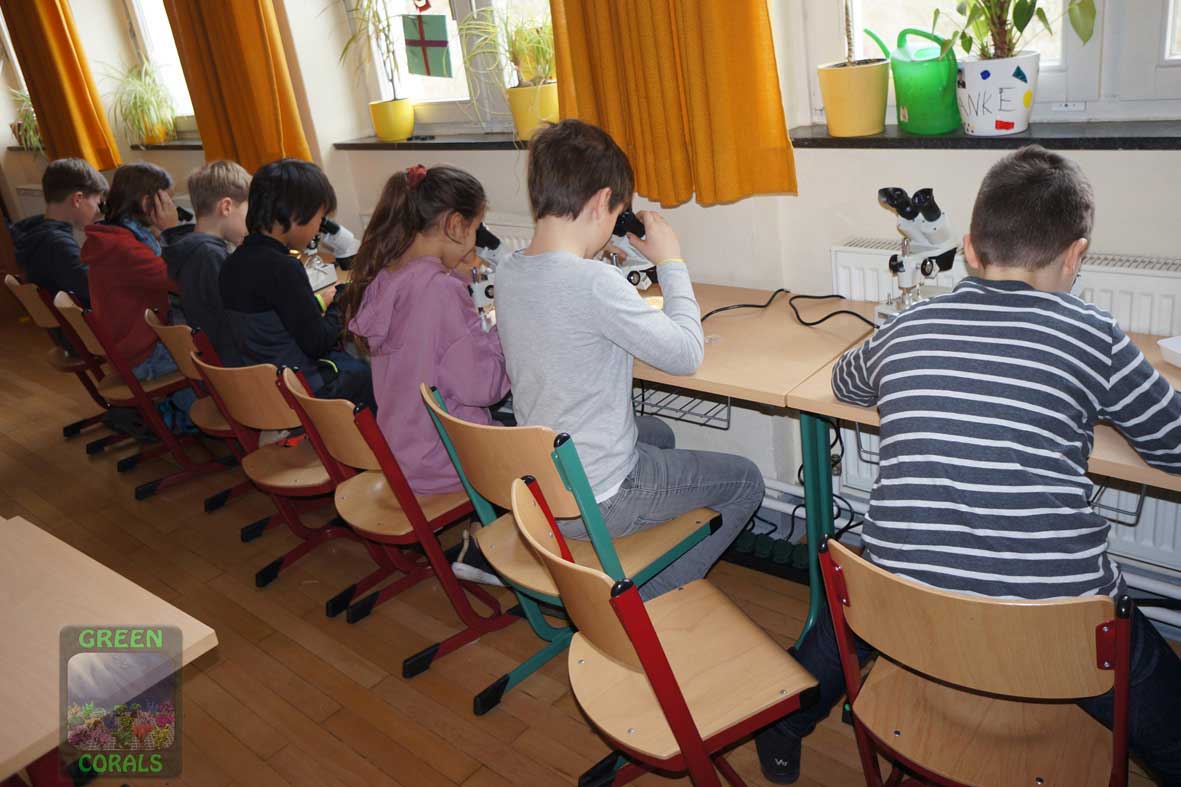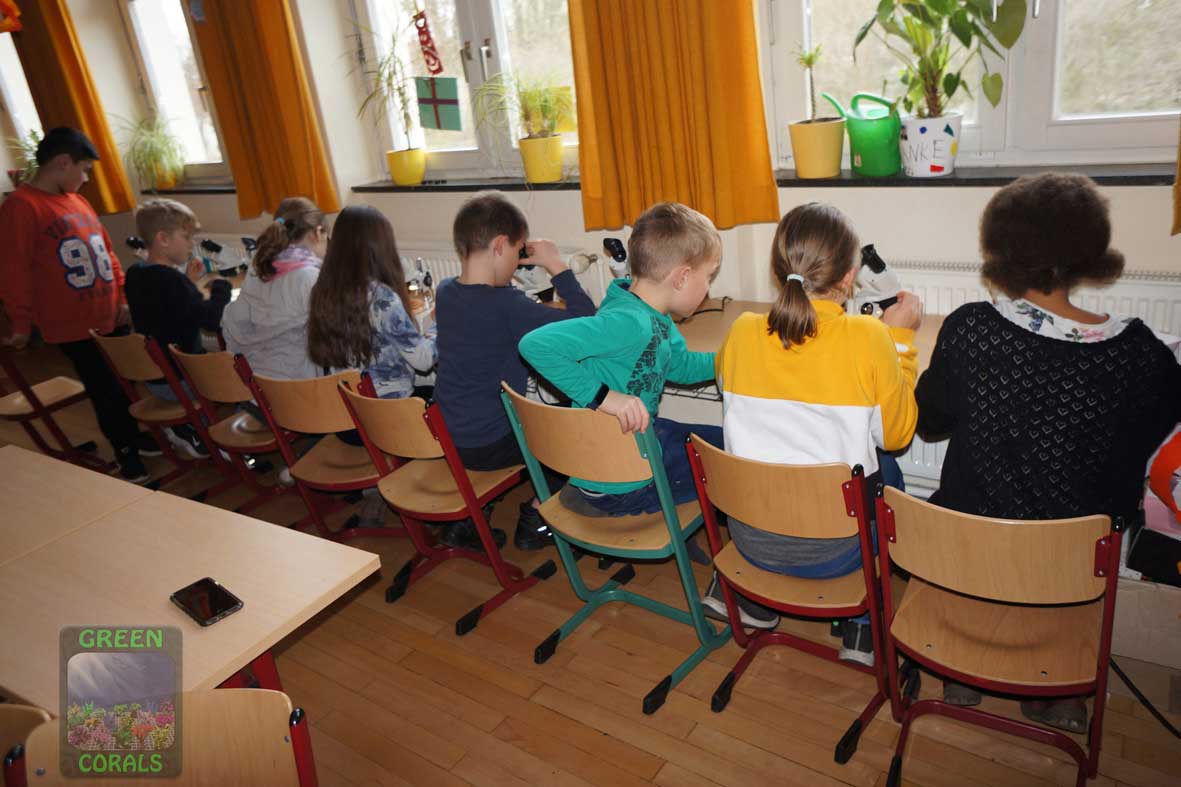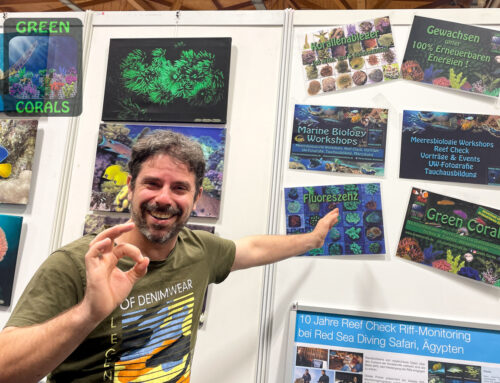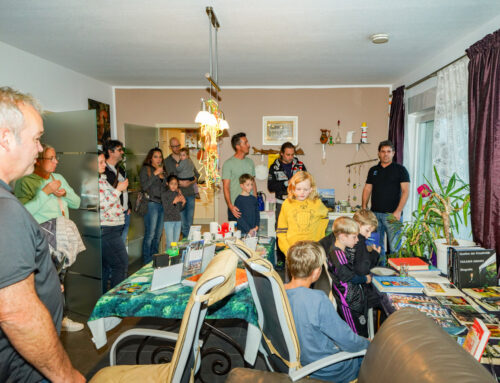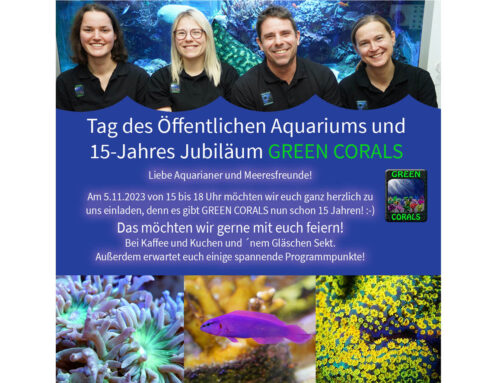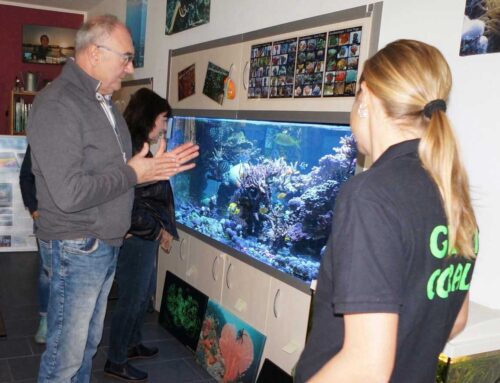Due to the great response to the first project day on reefs in November 2018, the second project day will take place on 9 March 2020 at Lehndorf Primary School in Brunswick. Once again, it was an educational day for all involved.
After an introductory presentation, three stations invited students to get up close with marine animals, look under a microscope, browse through illustrated books and much more.
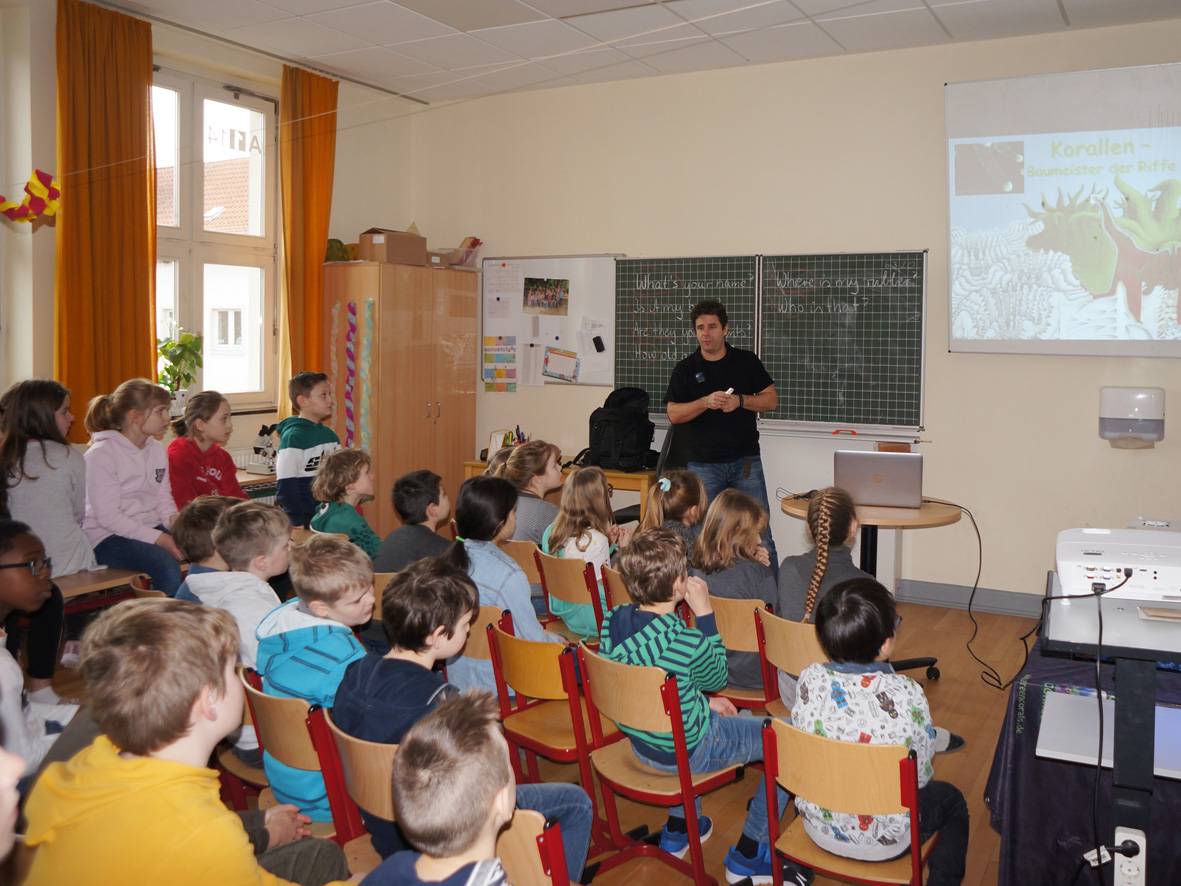
The project day for the fourth grade started with a presentation on “Coral Reefs and Climate Change” by marine biologist Stephan Moldzio.
He introduced the students to the exciting world of coral reefs in a child-friendly way and made the young audience aware of one of the most important issues of our time: climate protection. A vivid poster illustrated the existential threat posed to coral reefs by global warming and ocean acidification. The children were then given the opportunity to take action themselves: Working in groups, they went through various stations where they explored, discovered and learned with fun and enthusiasm.
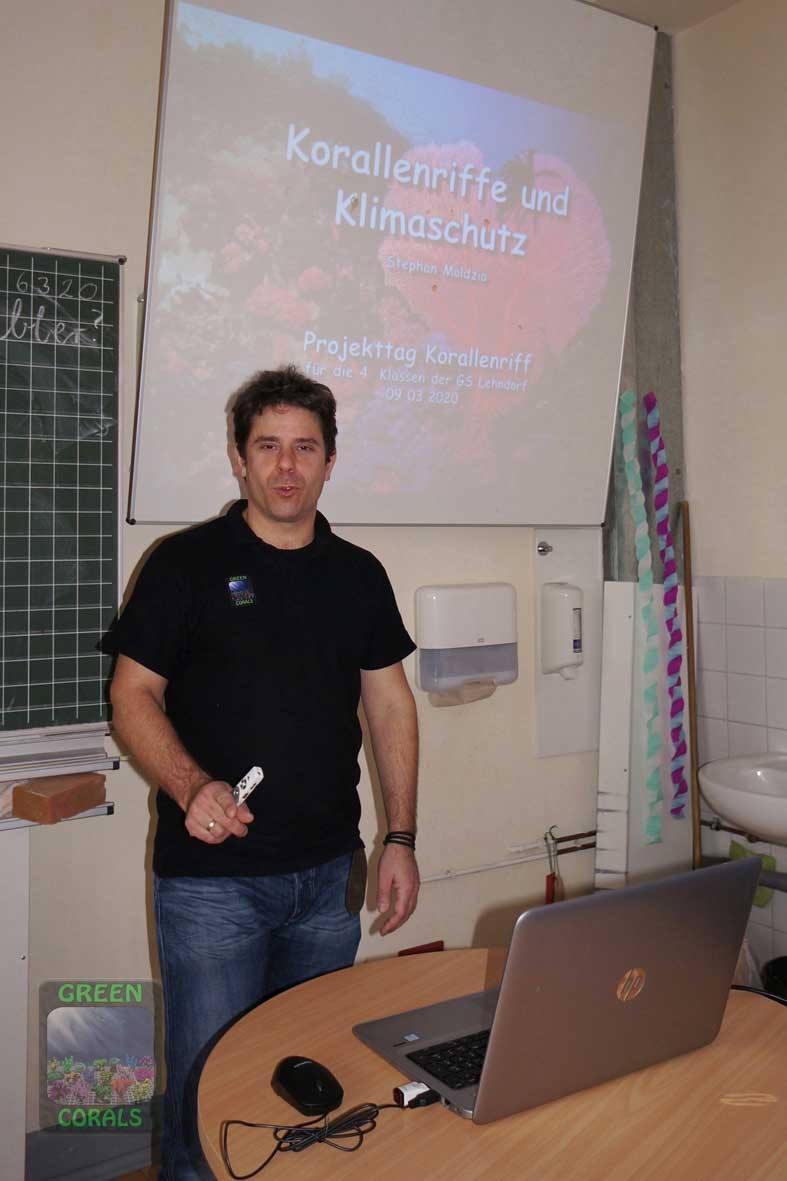
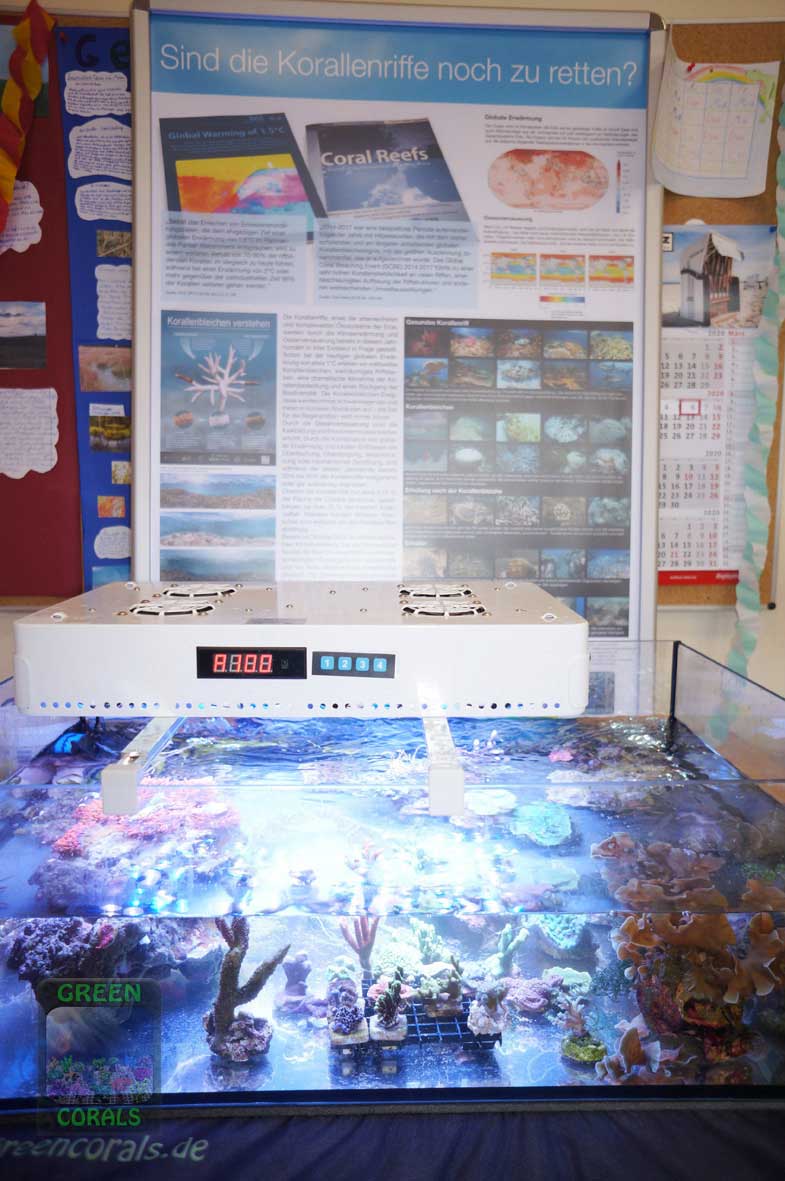
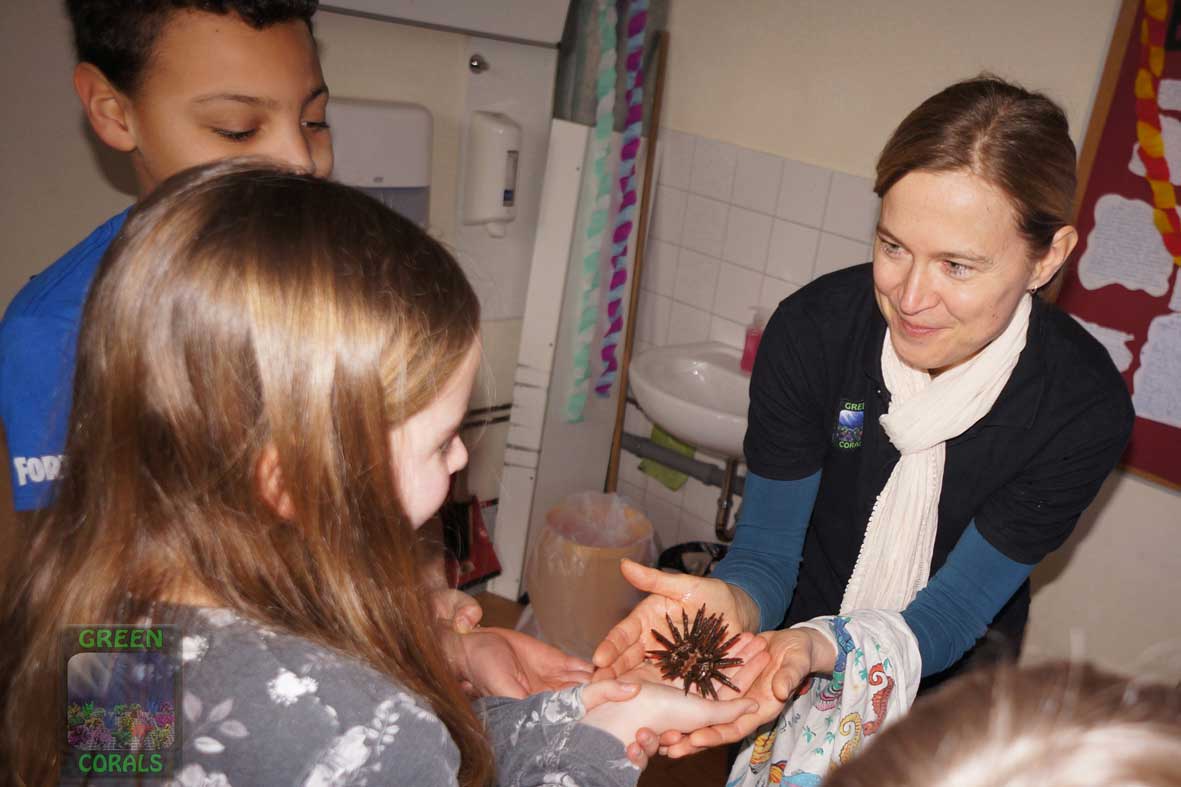
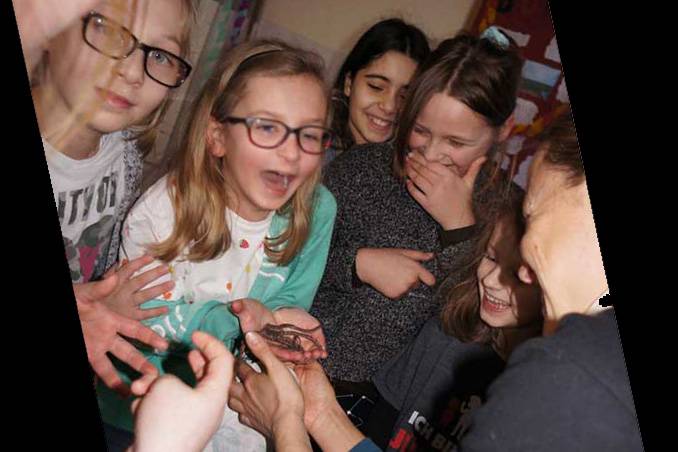
The seawater aquarium with its many inhabitants was probably the most exciting station – literally. The students were amazed to see live coral, sea urchins, brittle stars, hermit crabs, seaweed and other sea creatures. But they didn’t stop there. The animals were also picked up and inspected. Touching an unfamiliar creature, such as the brittle star with its five spiny arms, took some effort at first. Will it sting? Or even bite? How does this animal behave? But all the children were brave and clearly enjoyed getting up close to these interesting sea creatures. Direct perception with all the senses is particularly important for understanding nature. By approaching and observing closely, the fear of contact is reduced. Respect for living creatures and an interest in their way of life and their special characteristics are created.
Understanding and enthusiasm for nature – the basis for environmental protection and conservation – develops in childhood!
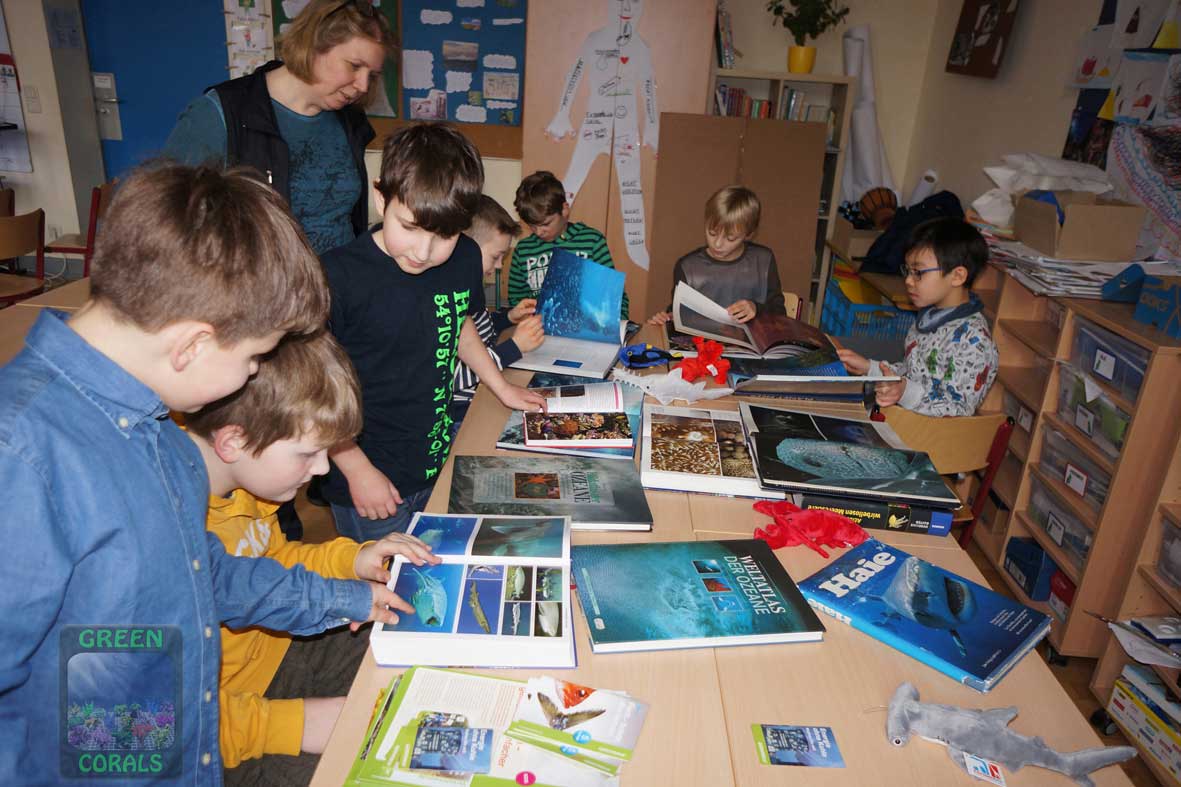
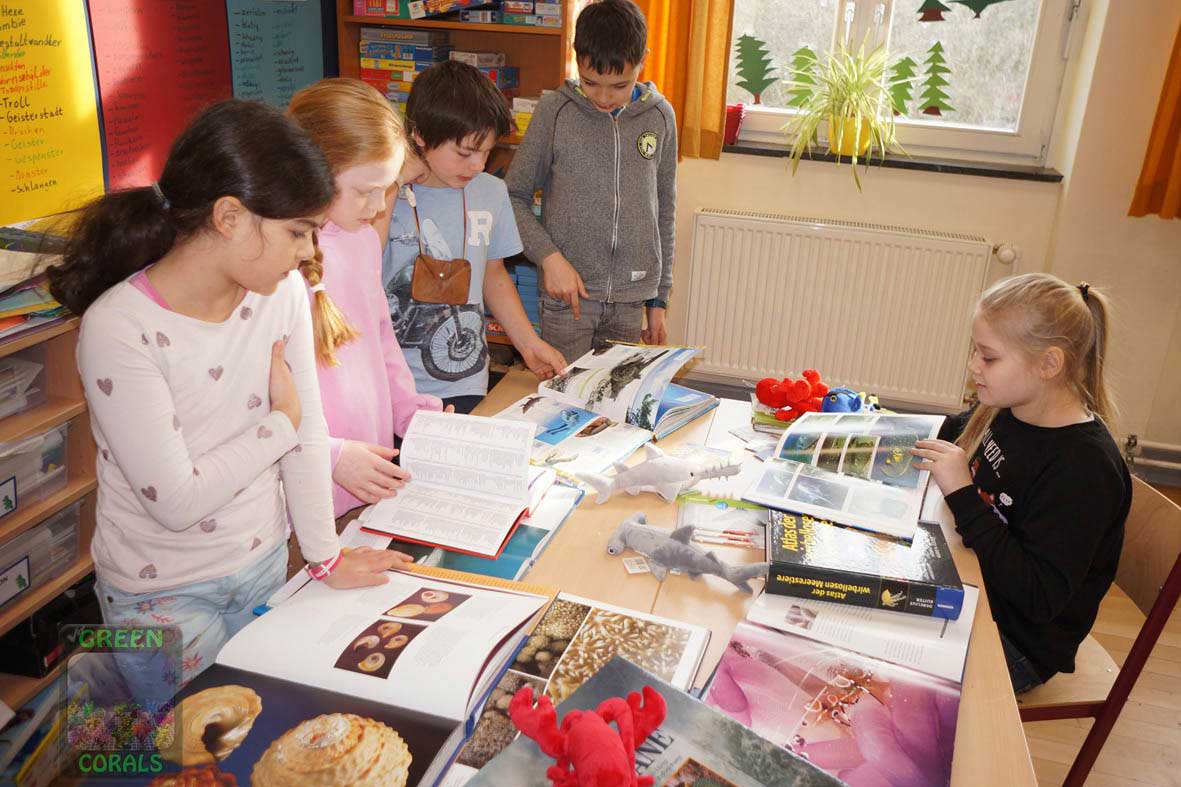
Another station was the book table, where the children could browse through thick tomes and epic coffee-table books about marine life and the oceans: There were pictures of fish, corals and invertebrates from all over the world and exciting photos of sharks and whales to discover. Kids were hooked immediately. With intuitive image selection, it was easy to see who was fascinated by the colours and shapes of corals or who wanted to find out how dangerous sharks really are. Whether they were browsing or reading, they were sure to learn something new.
At the third station, the students examined a variety of objects under the microscope: As well as coral skeletons, shells and snails, small living animals such as bristle worms, amphipods, shrimps and small coral fragments were examined under the microscope. The microscopy of dry specimens such as spiders, ants, wasps and flies gave the children a new perspective on the insects they already know from their own backyards.
At the end of the lesson, the children received a certificate of participation.
And to take home a paper bag with the booklet “KORALLENRIFFWISSEN zum Internationalen Jahr des Riffes 2018”, some marine postcards and a real piece of coral skeleton. It is a day the children will not soon forget. And who knows? Maybe one or two of them will have discovered a new passion.
Read more about the first coral reef project day here.
